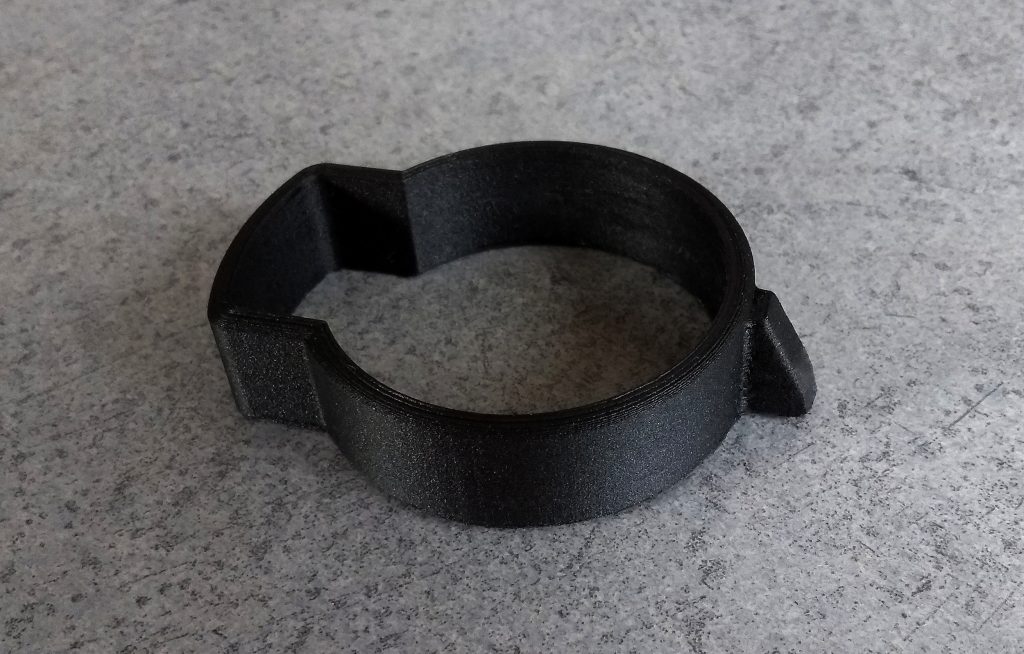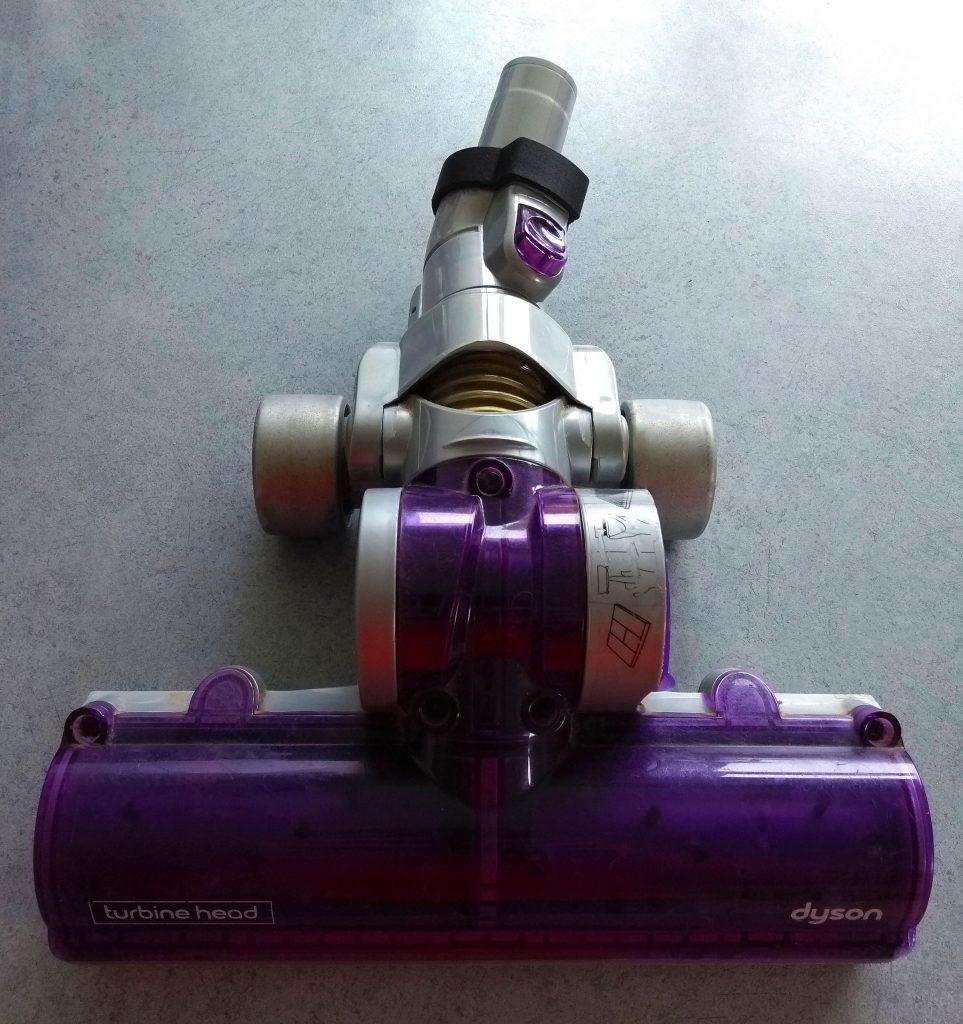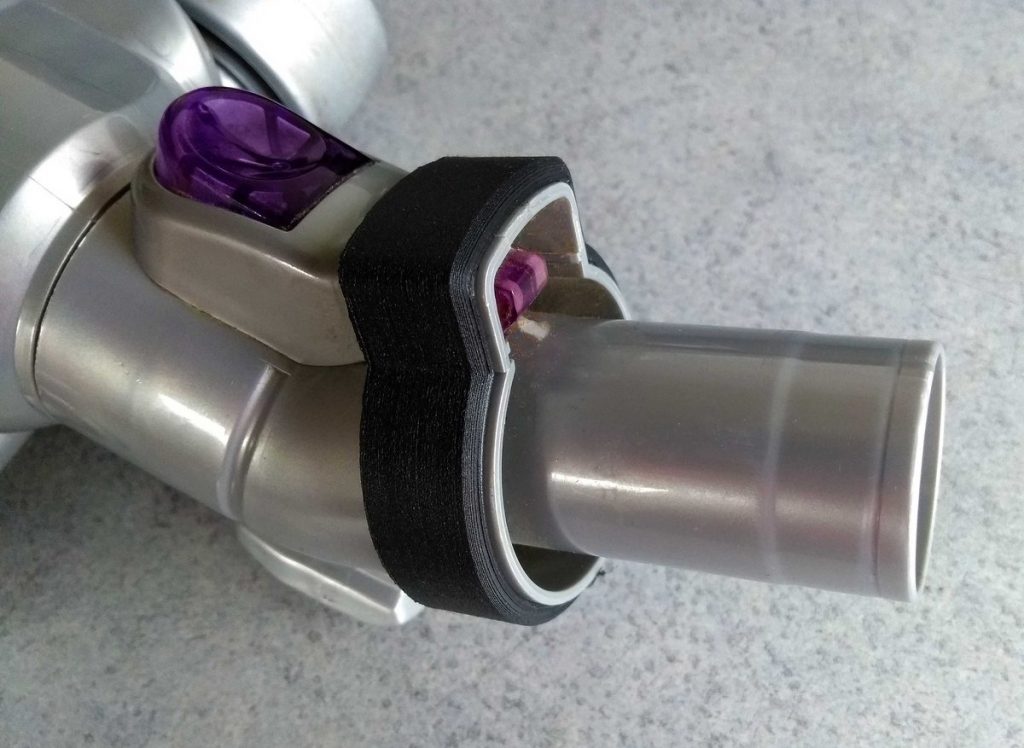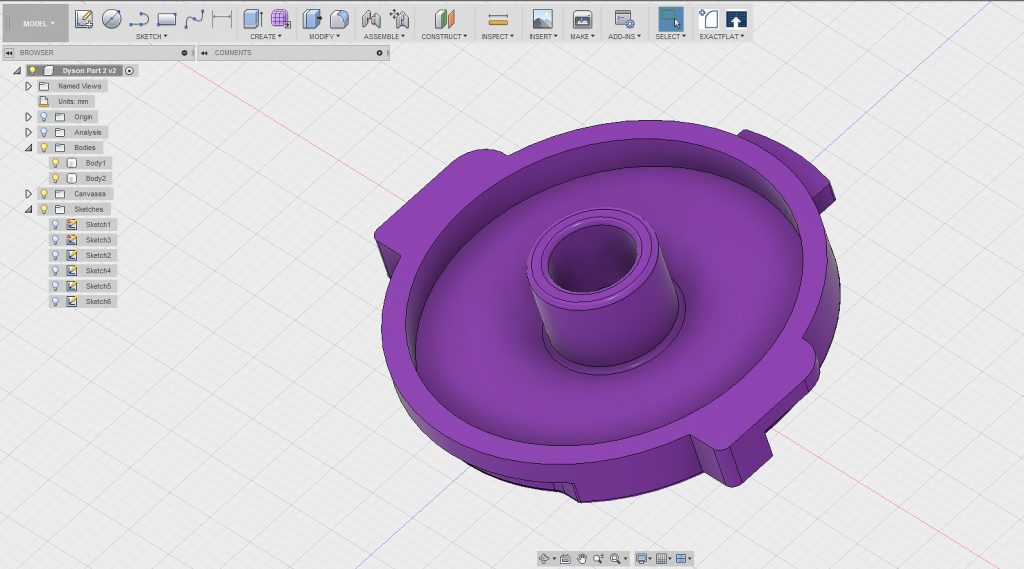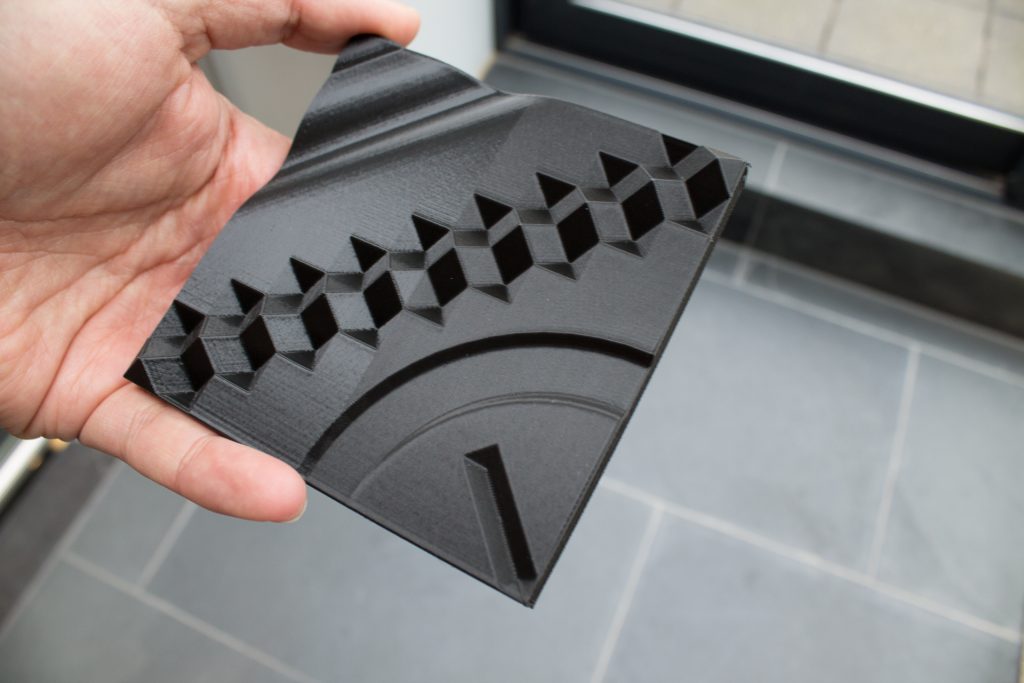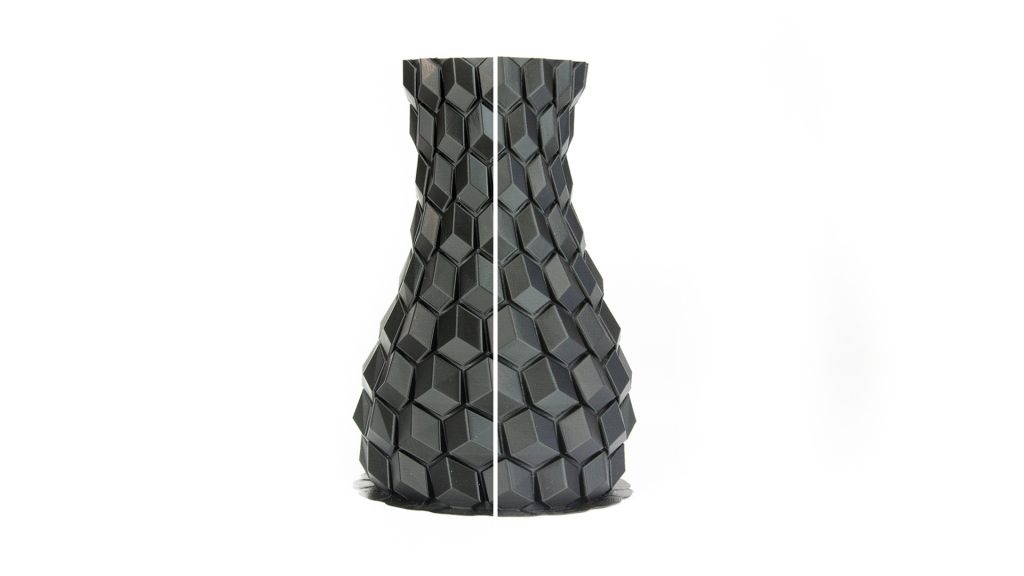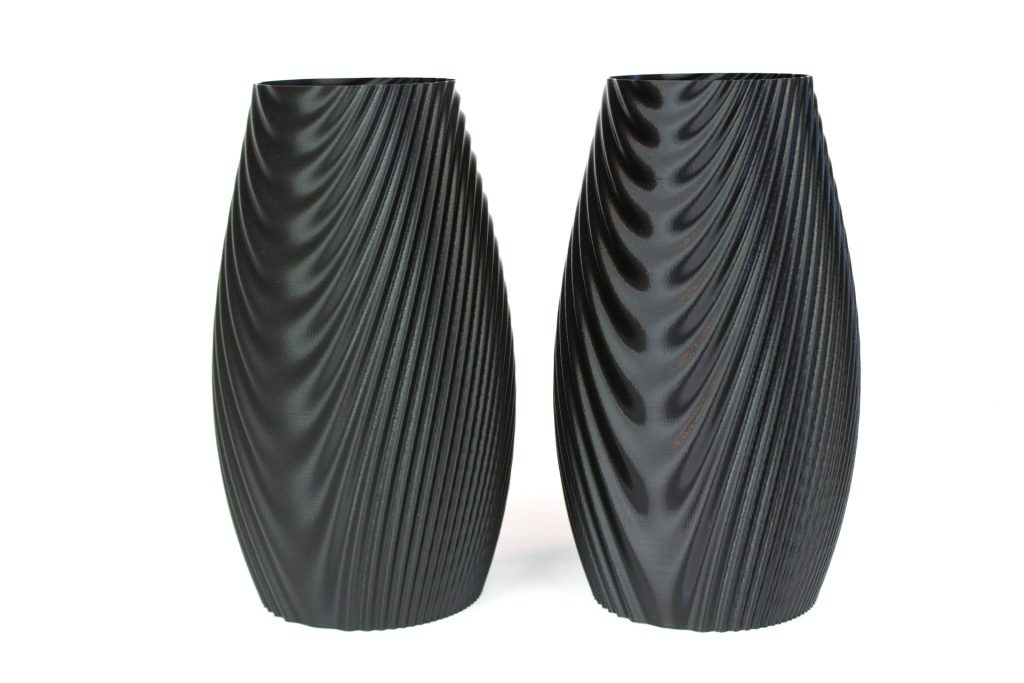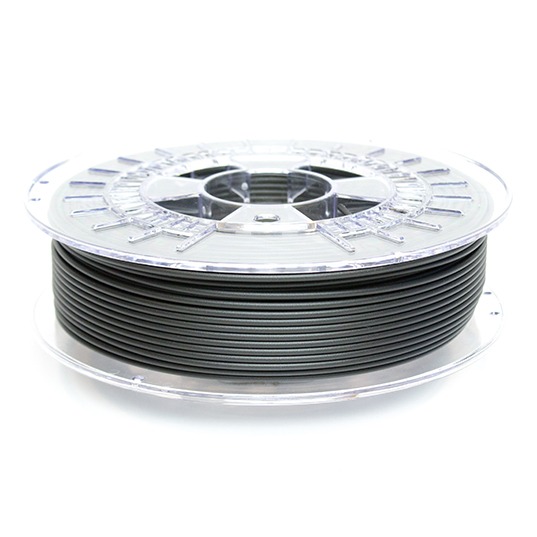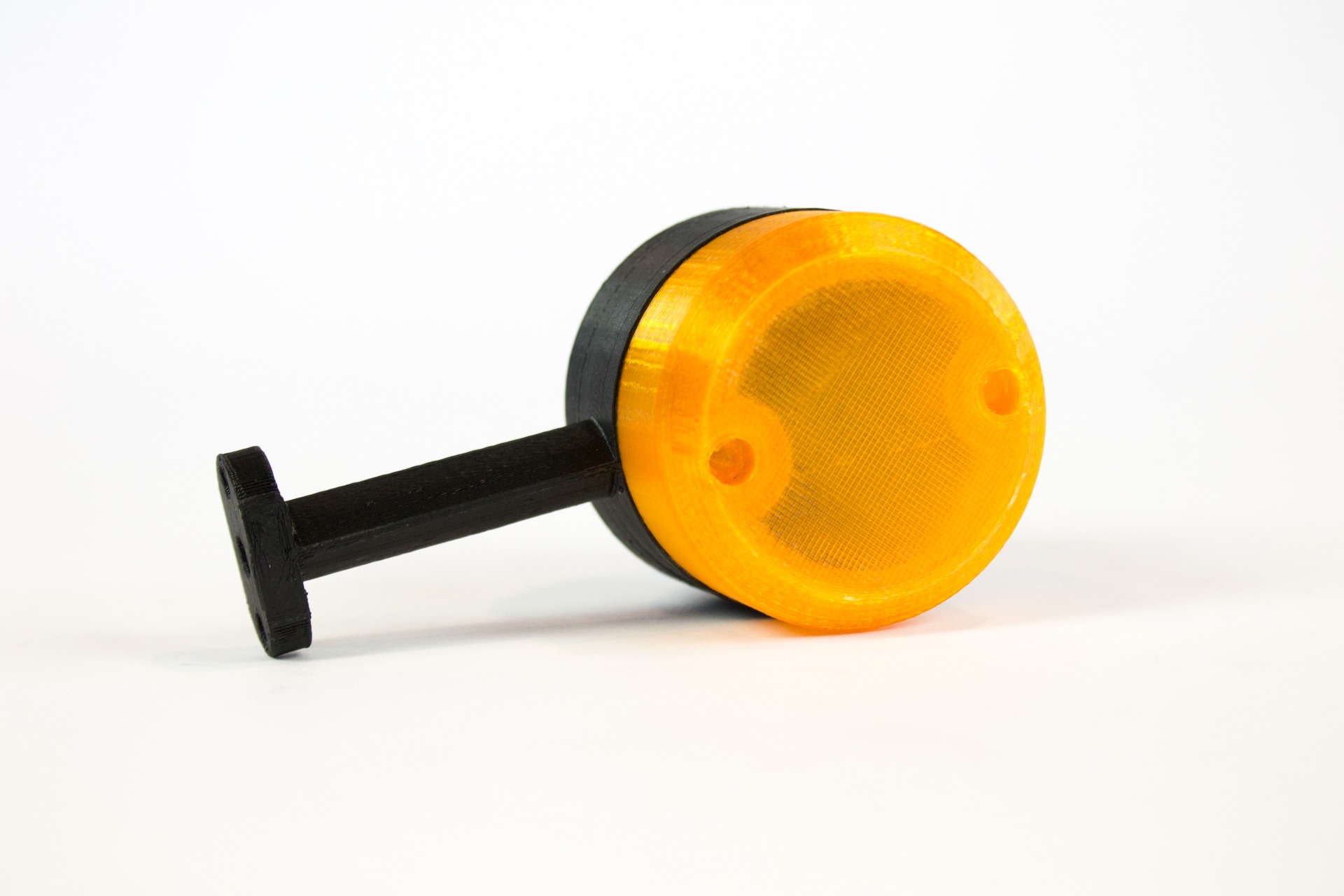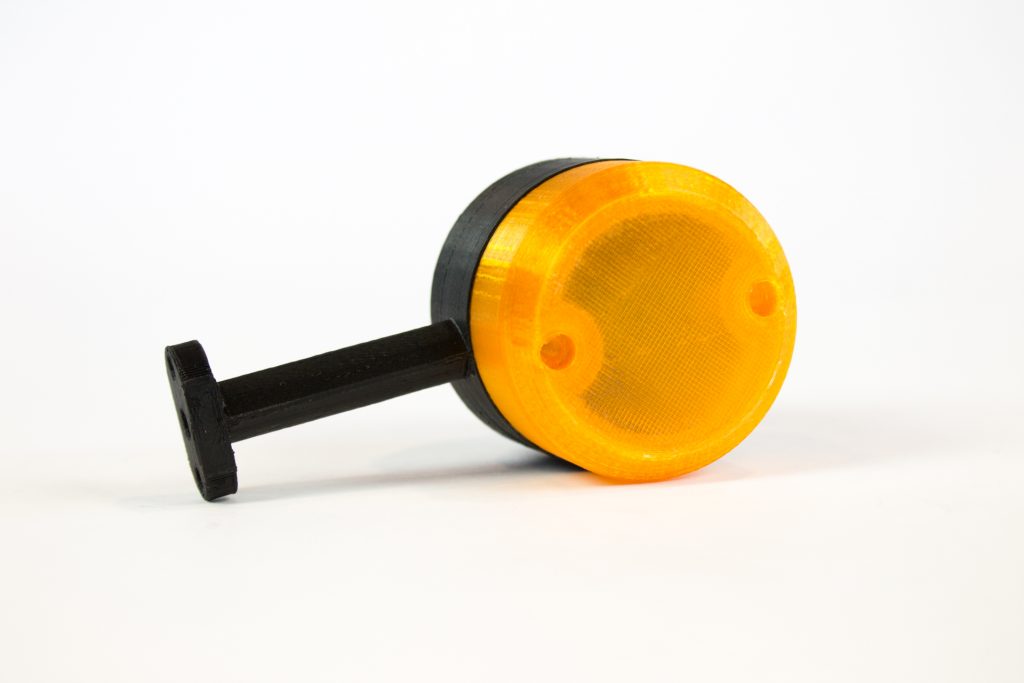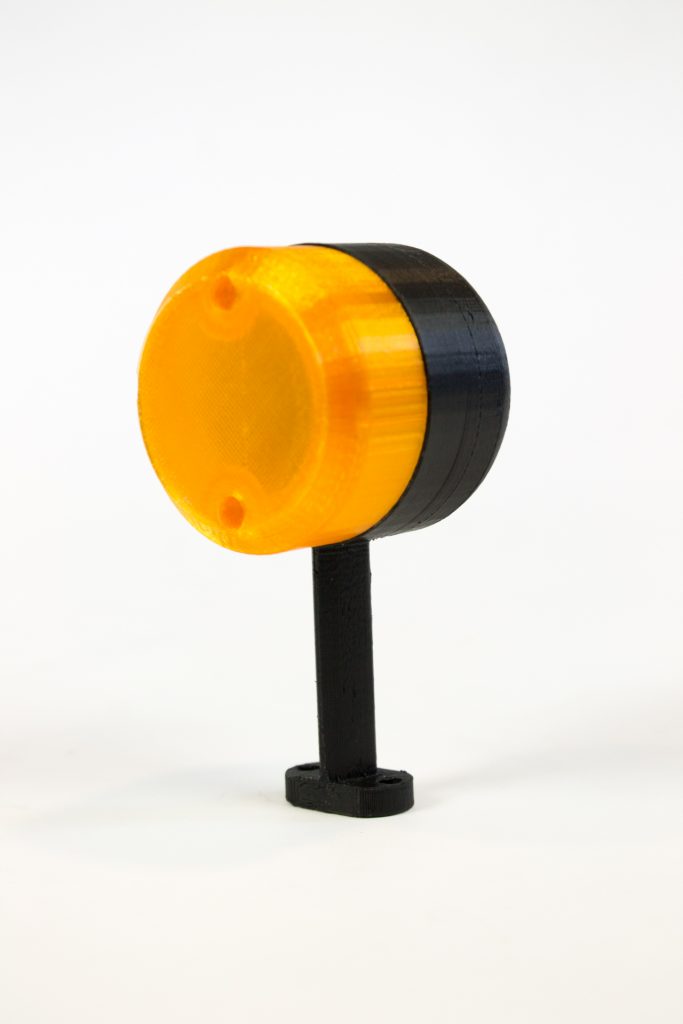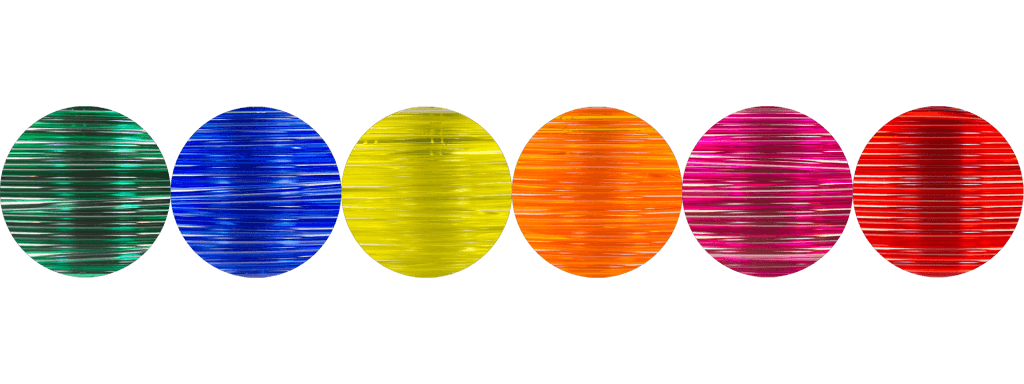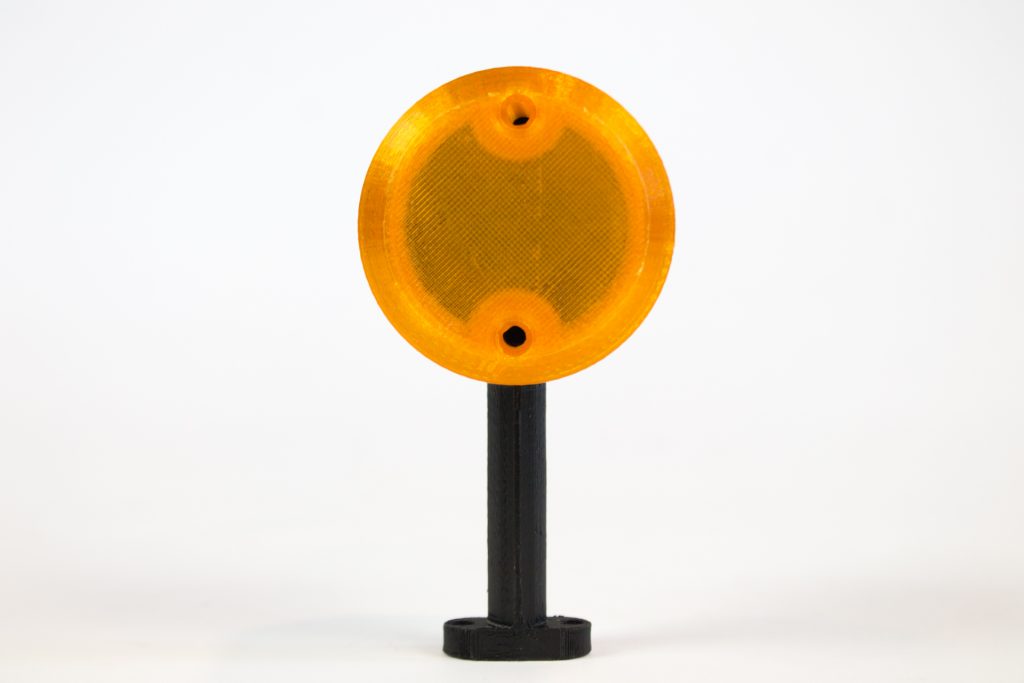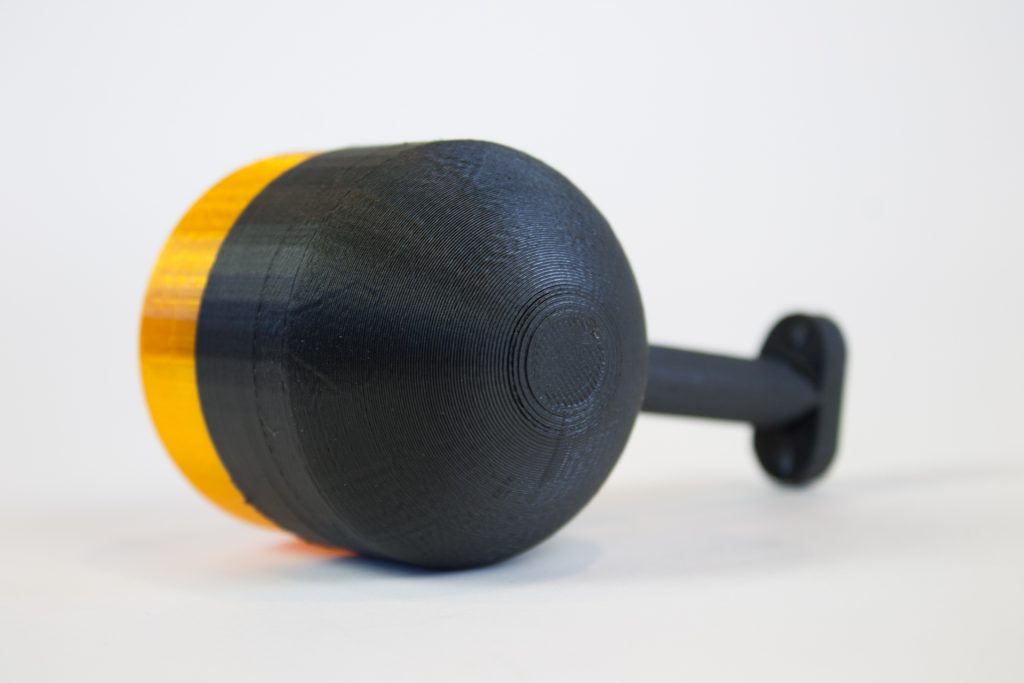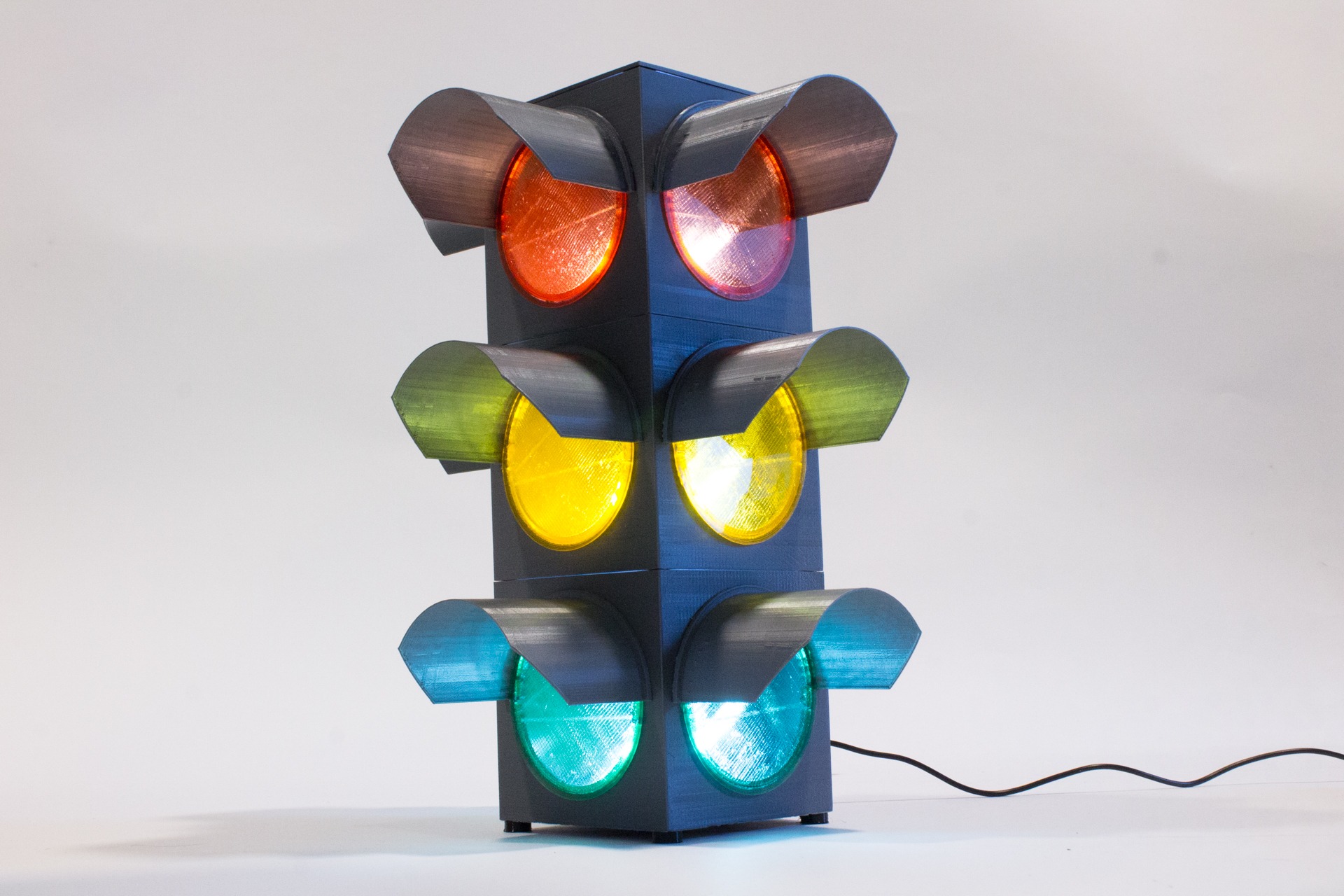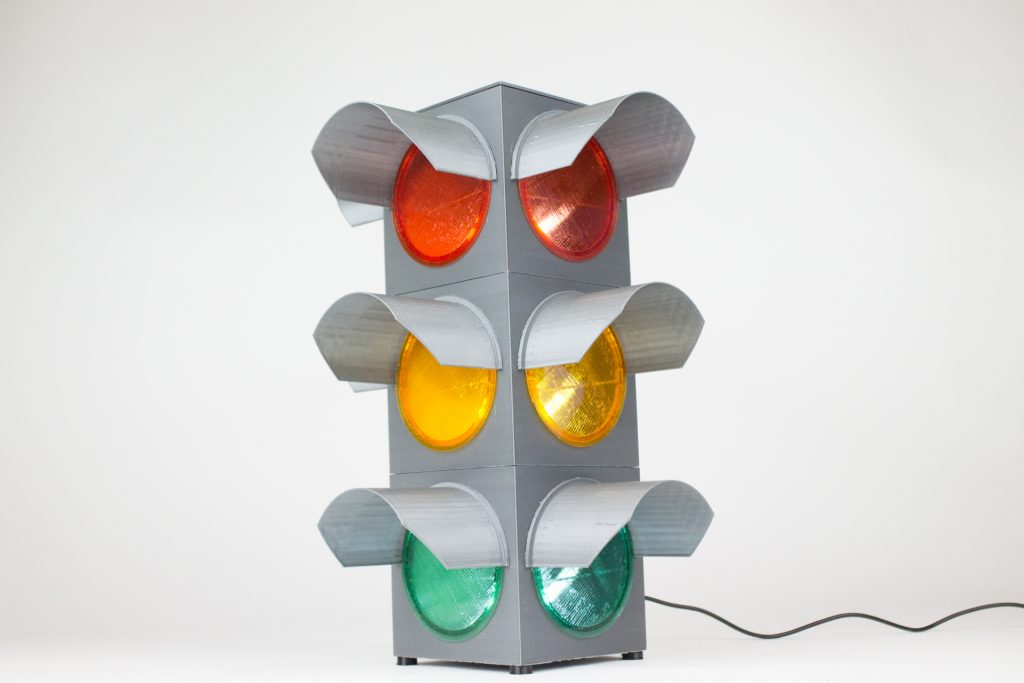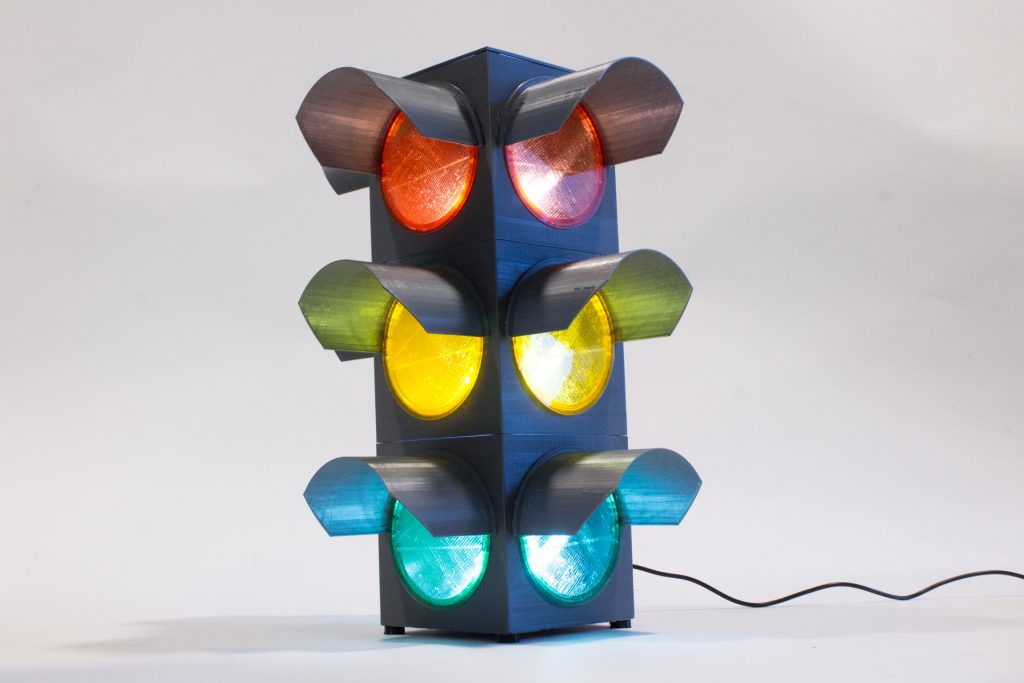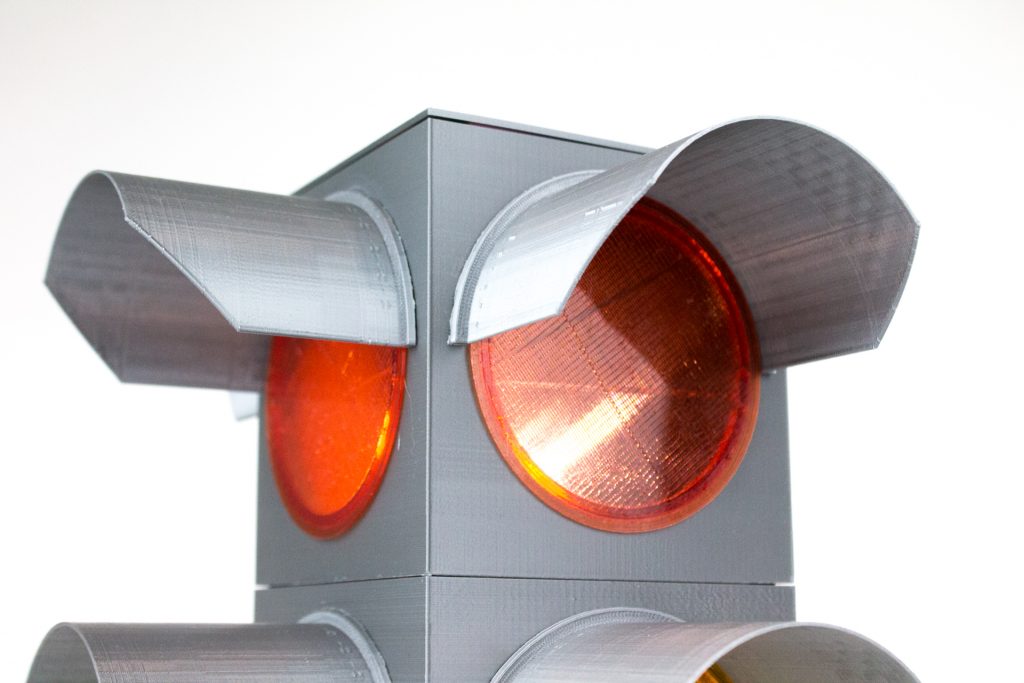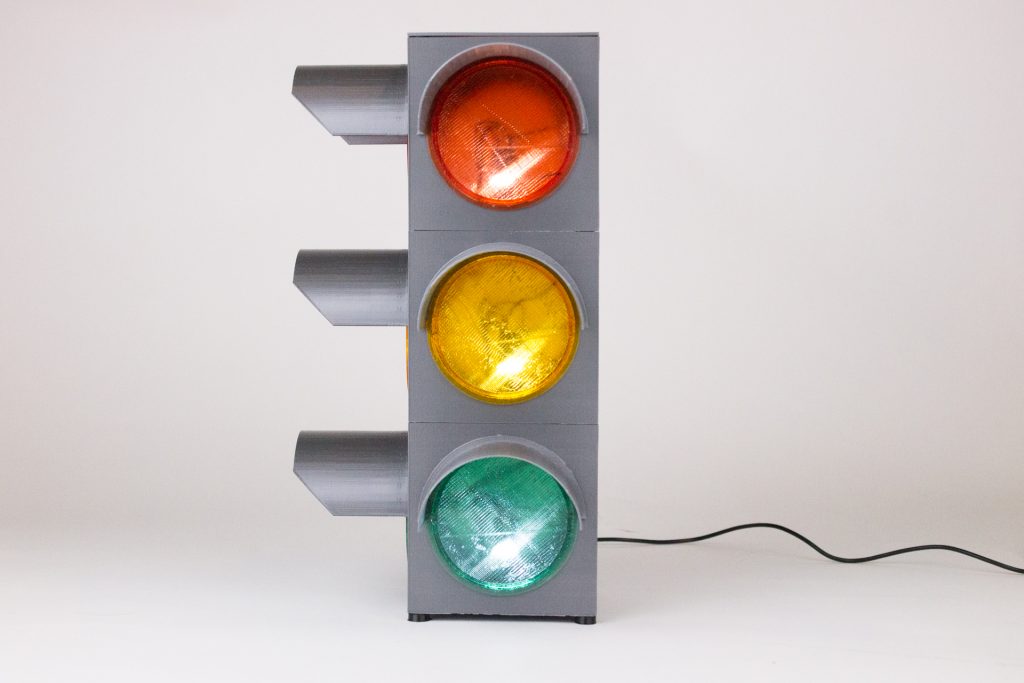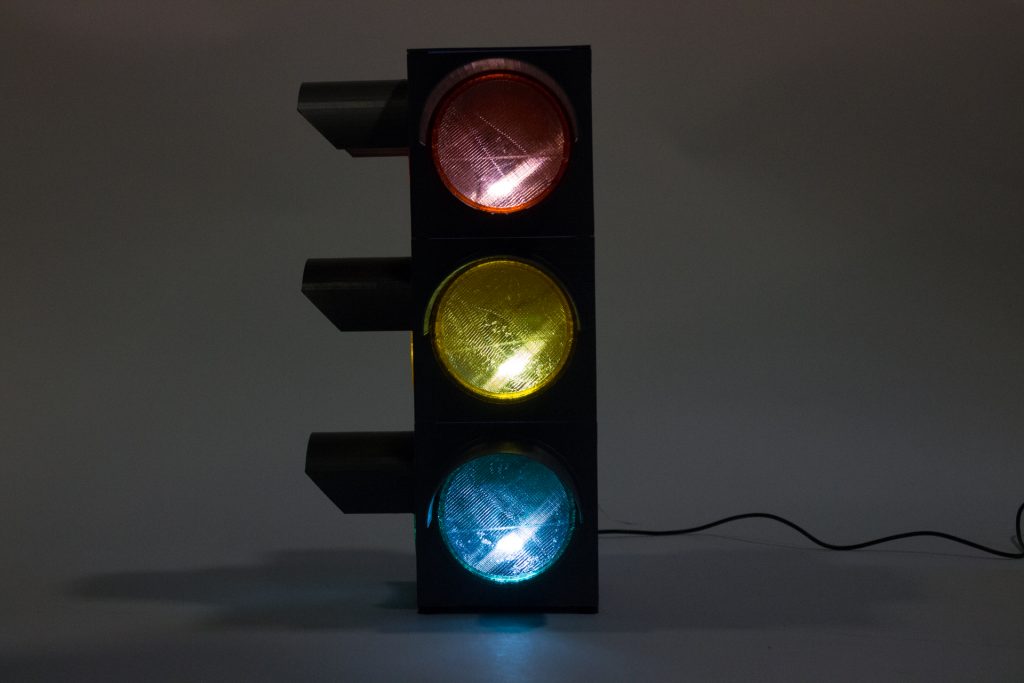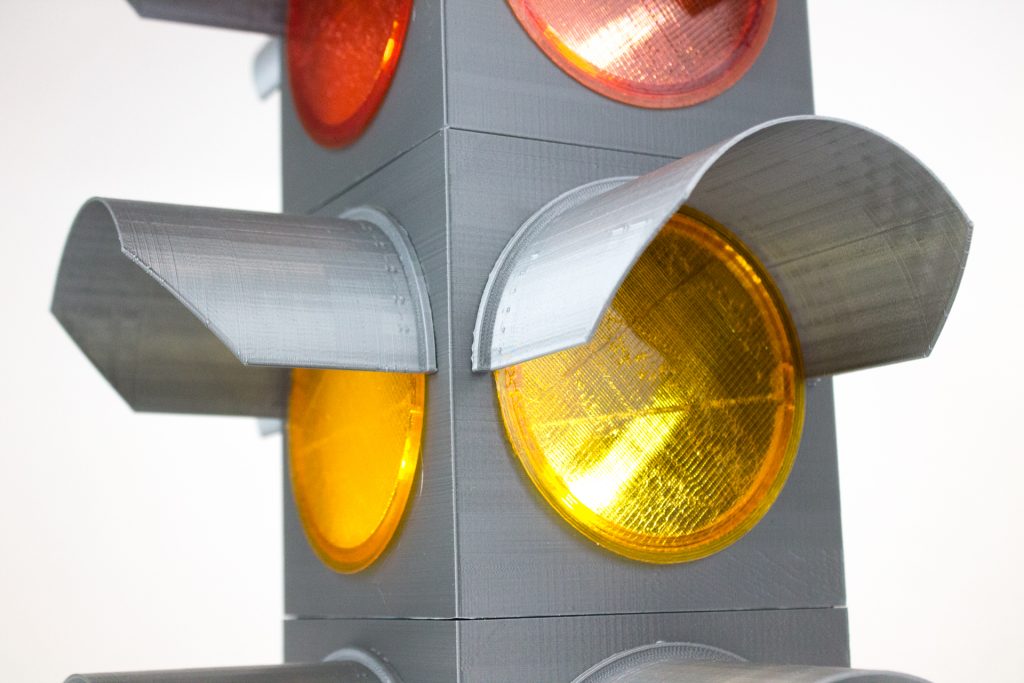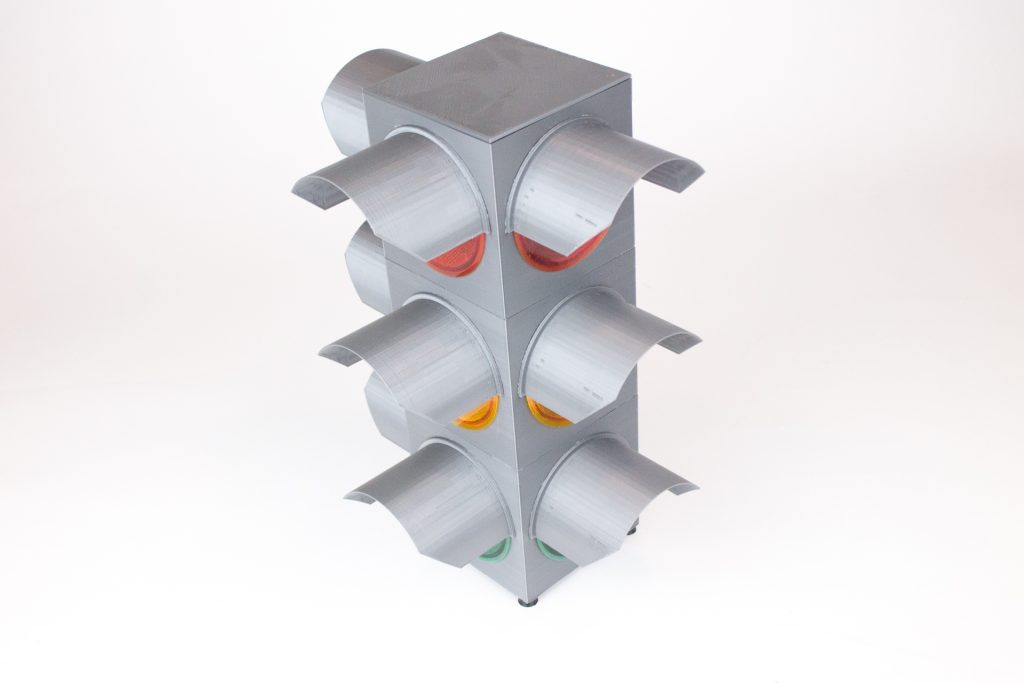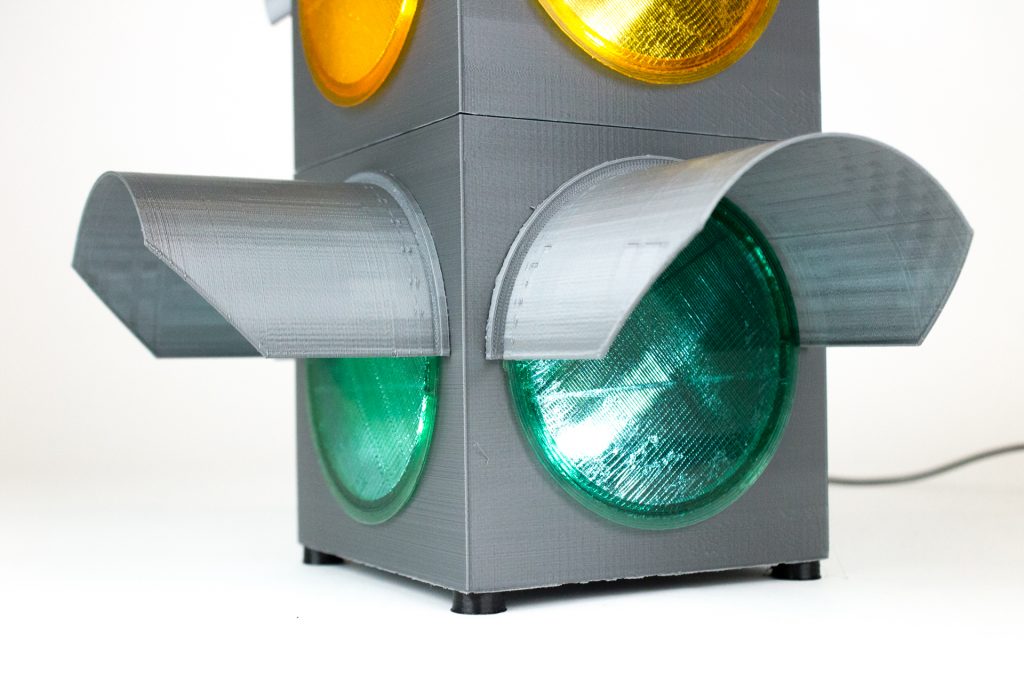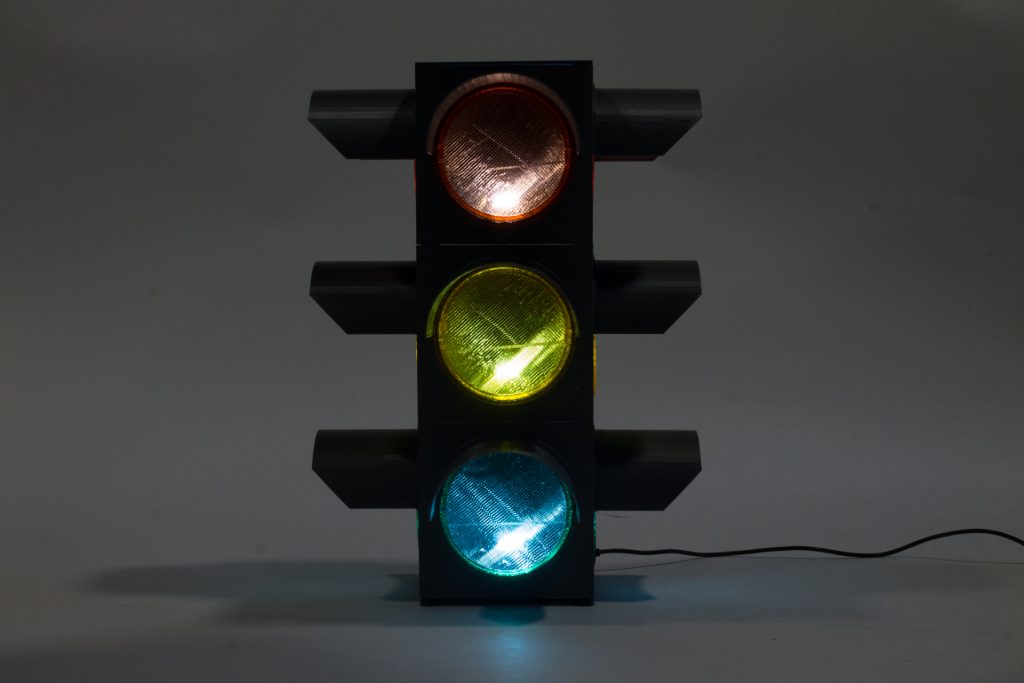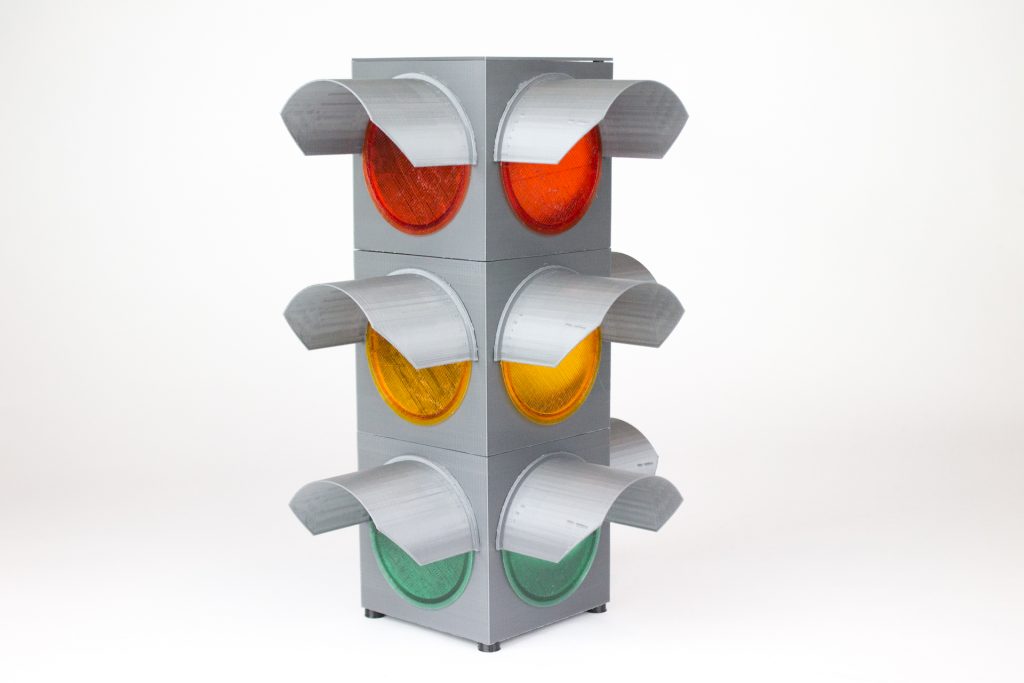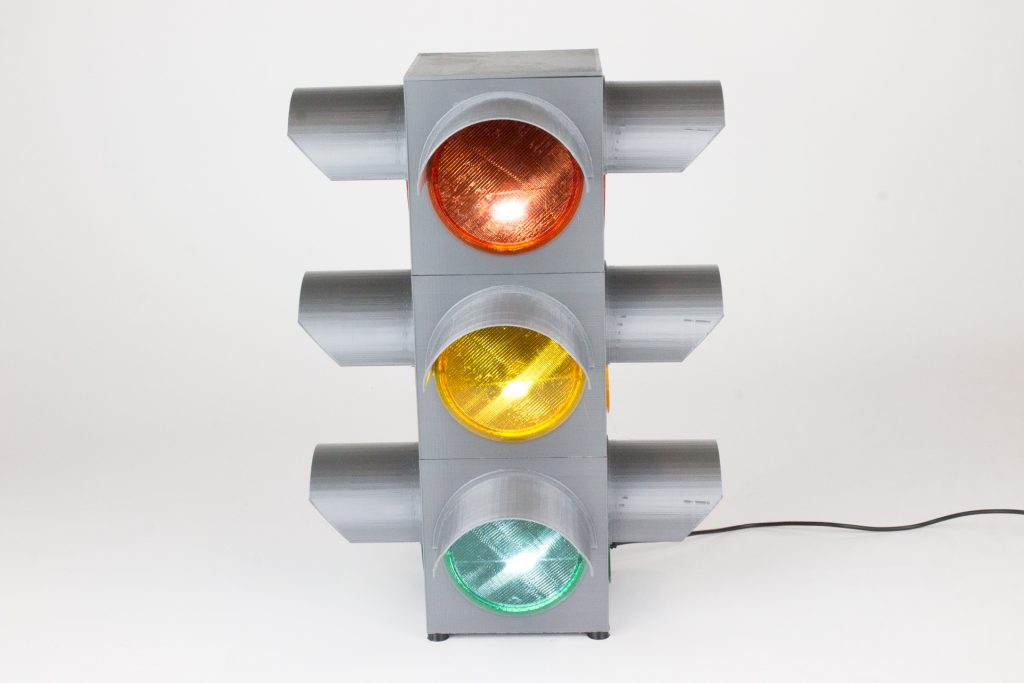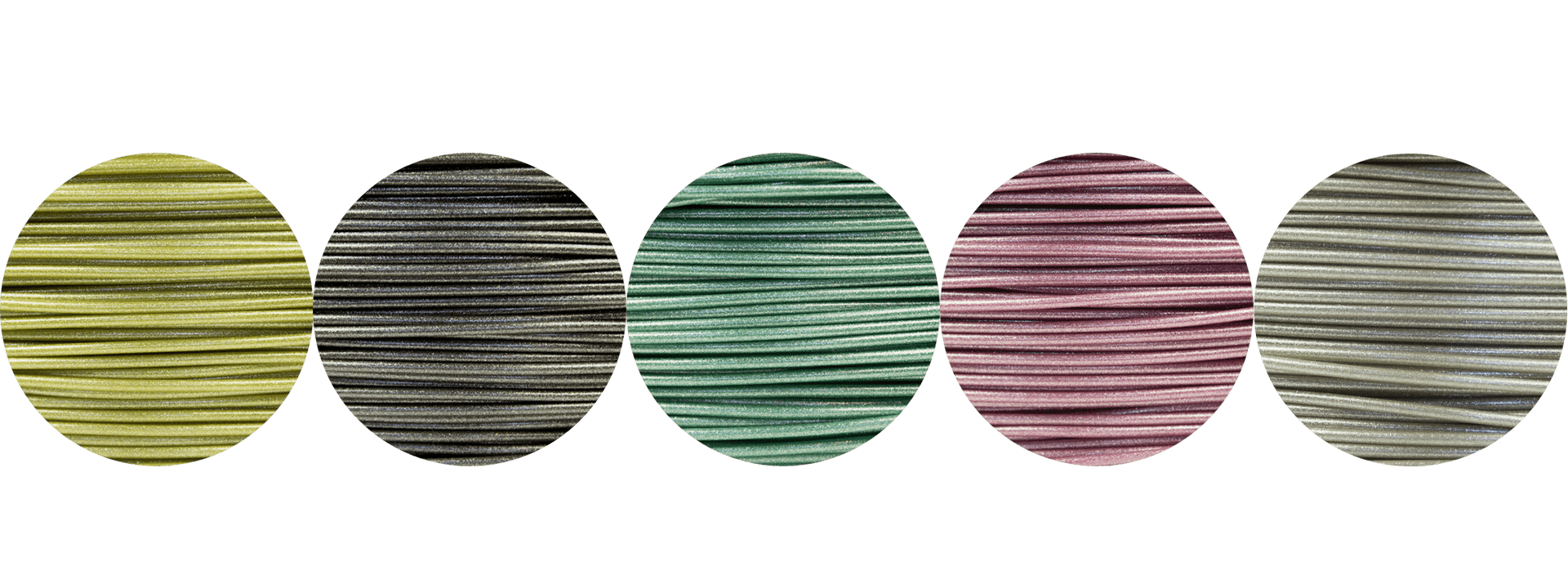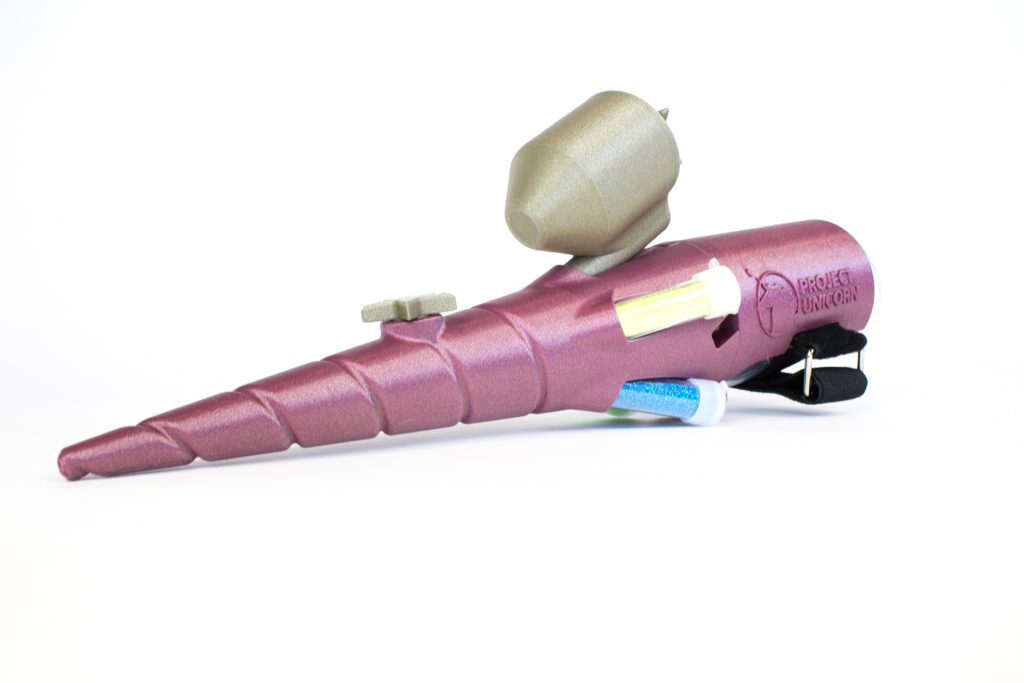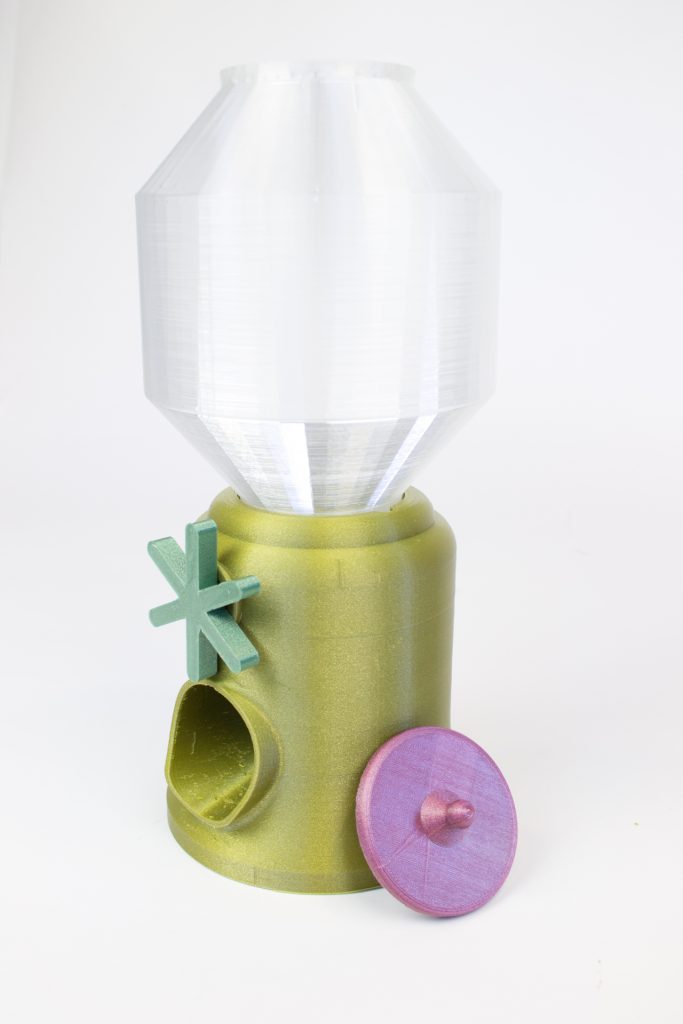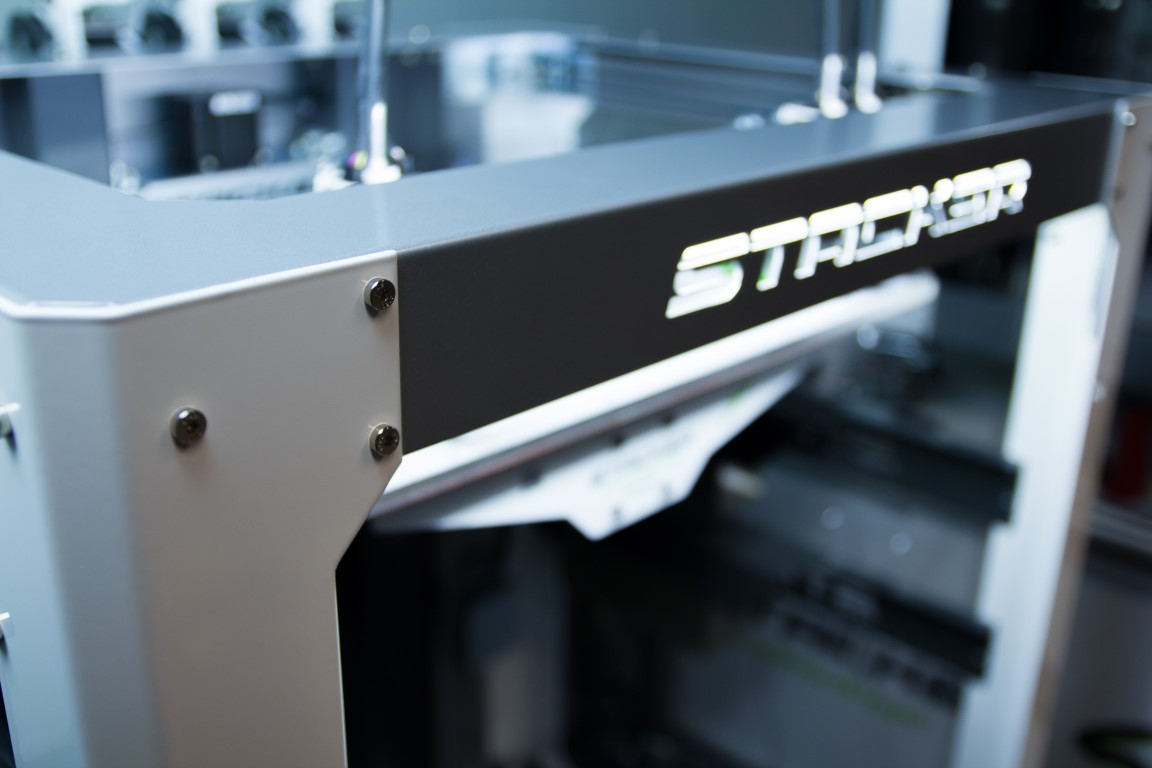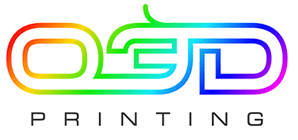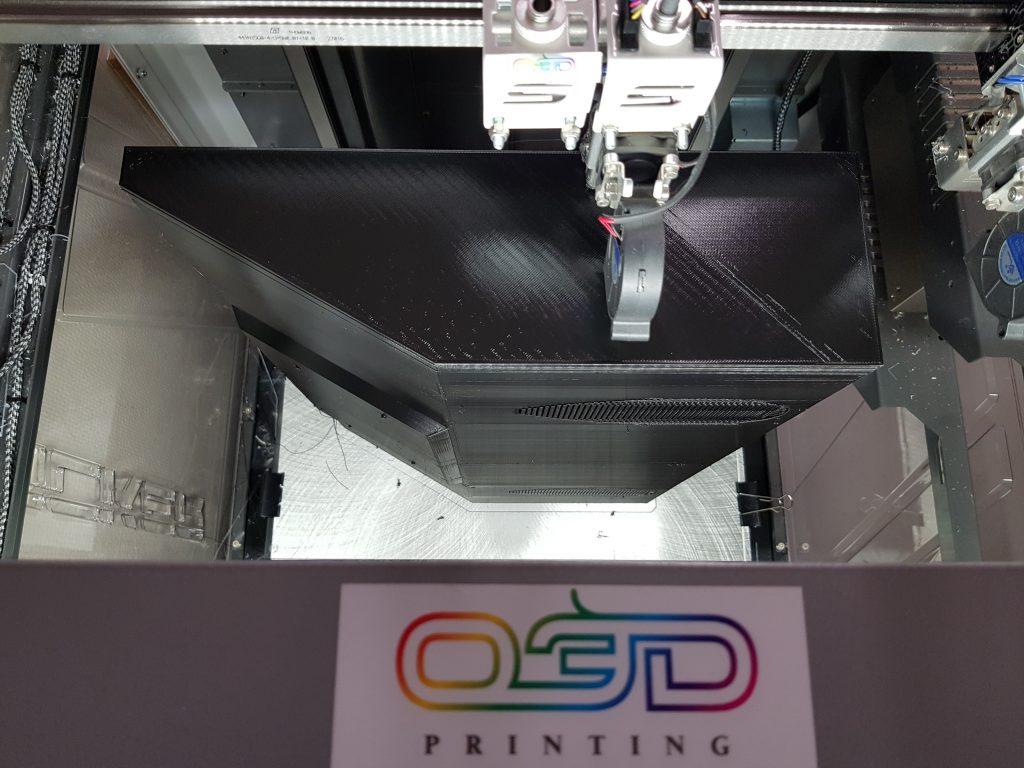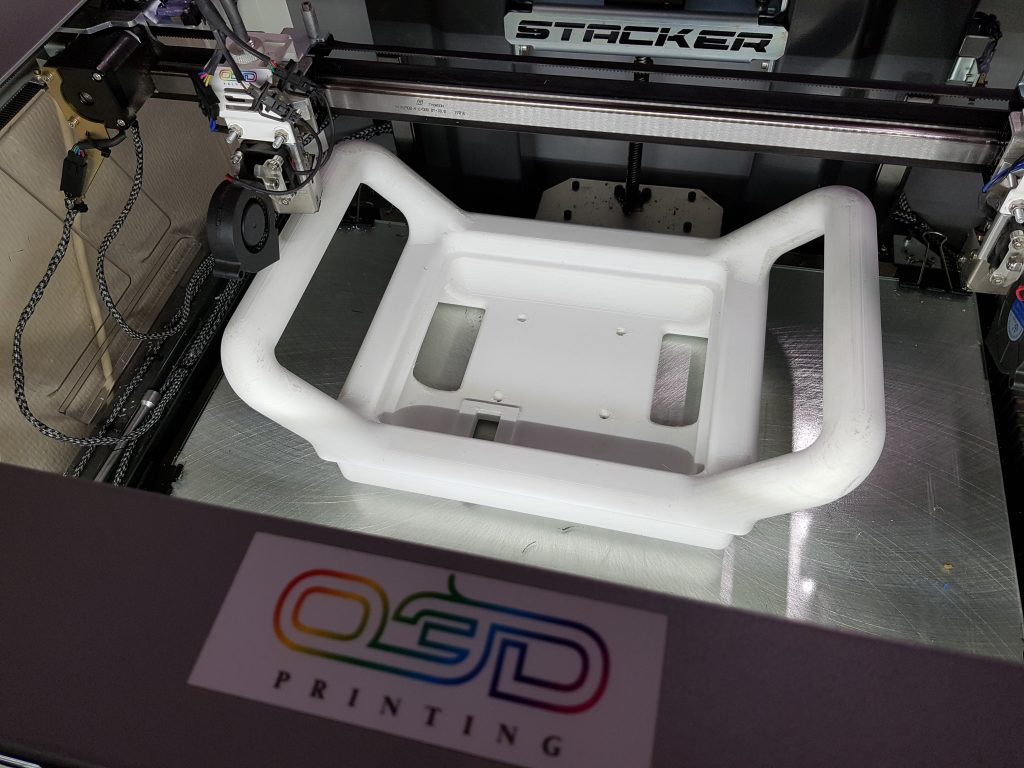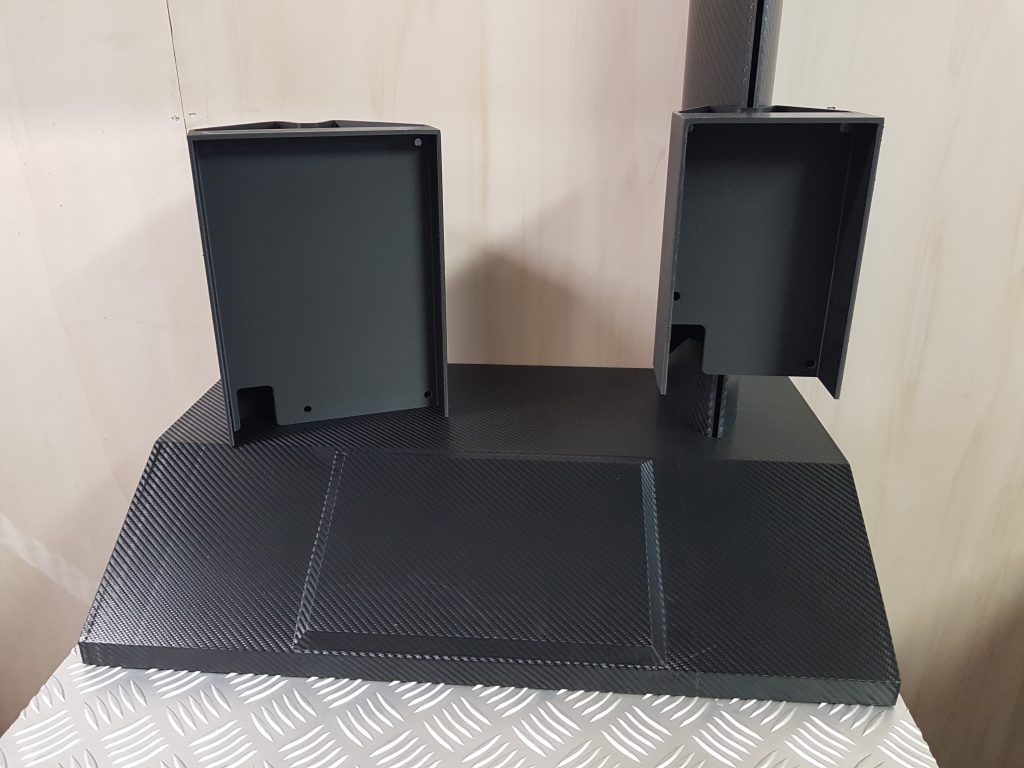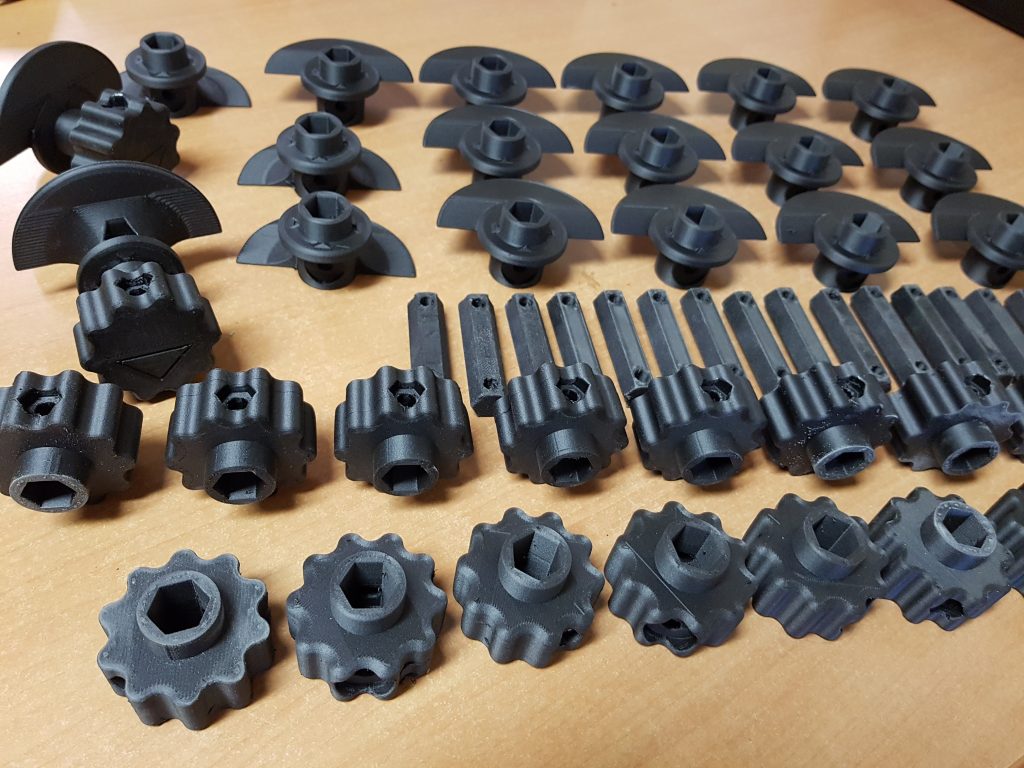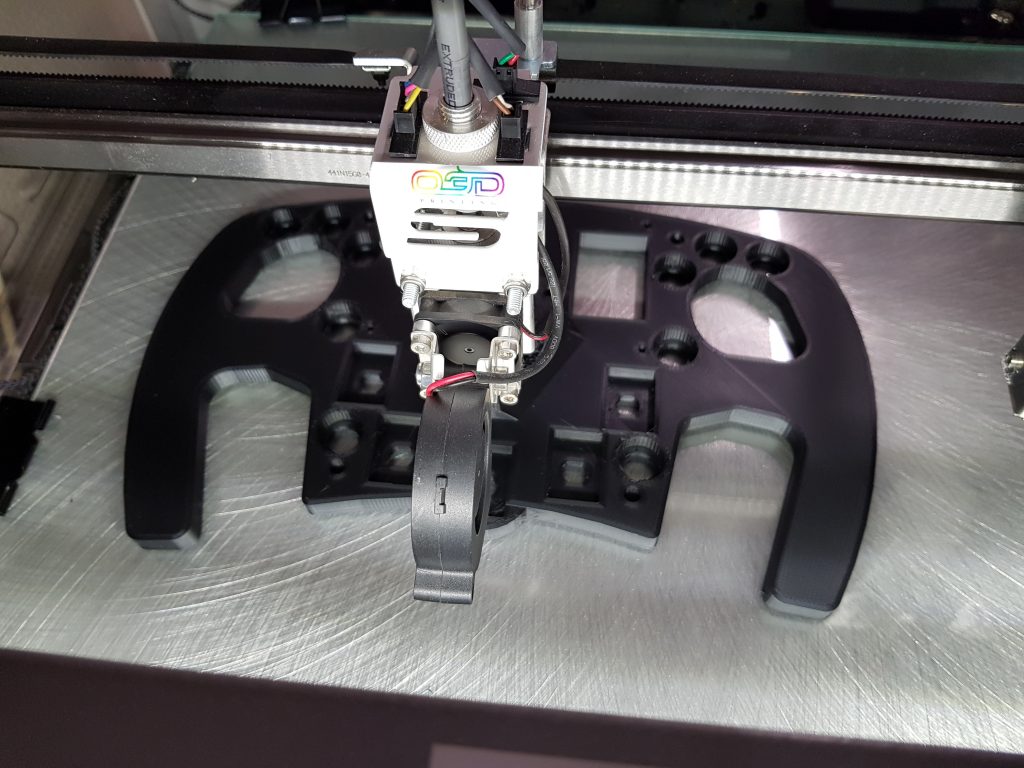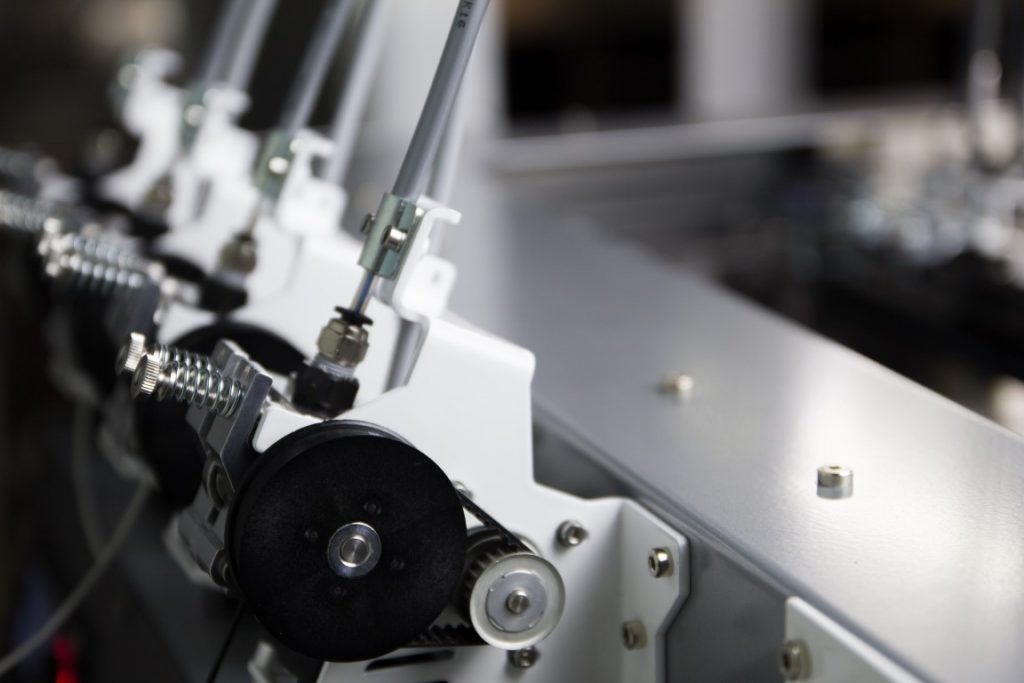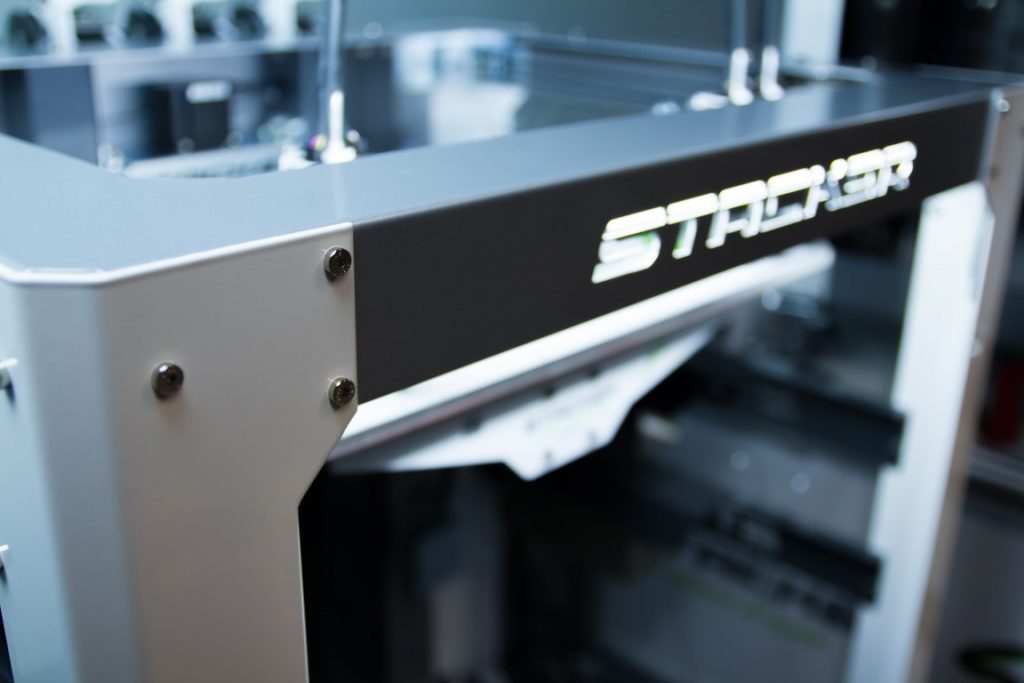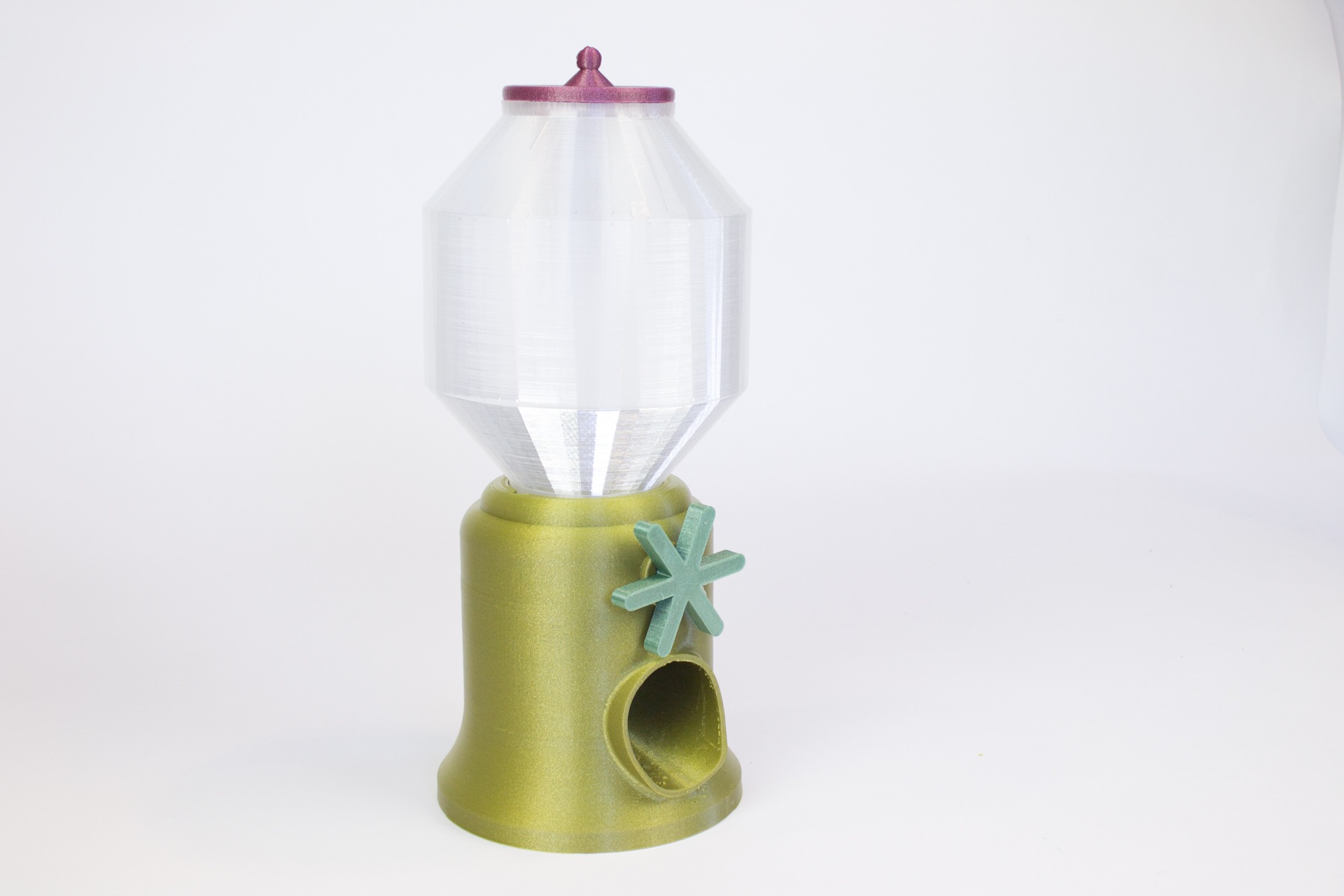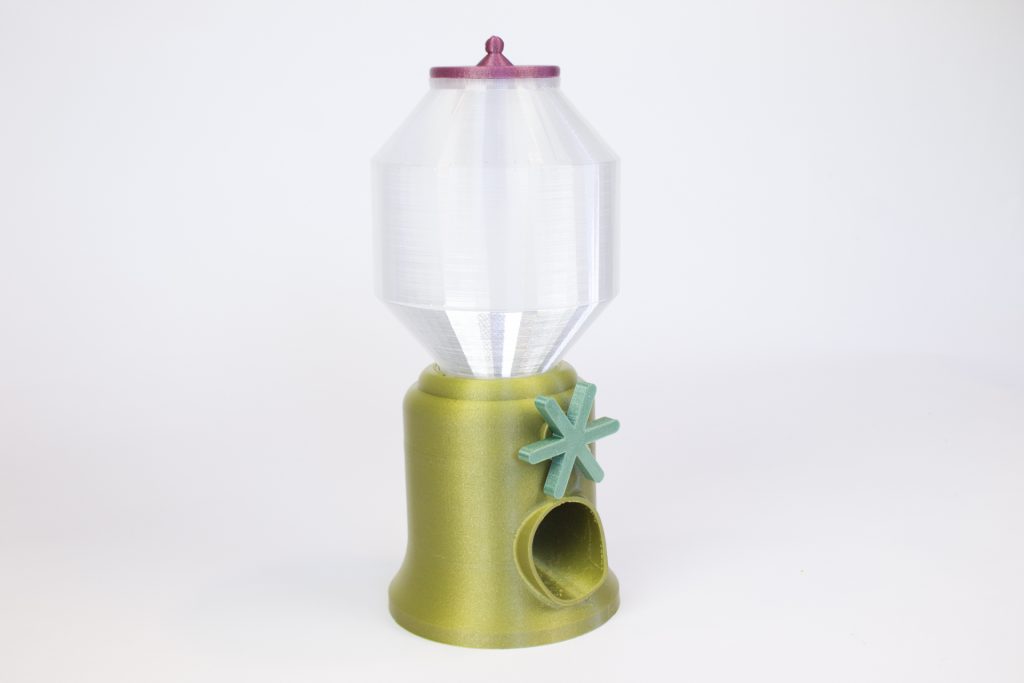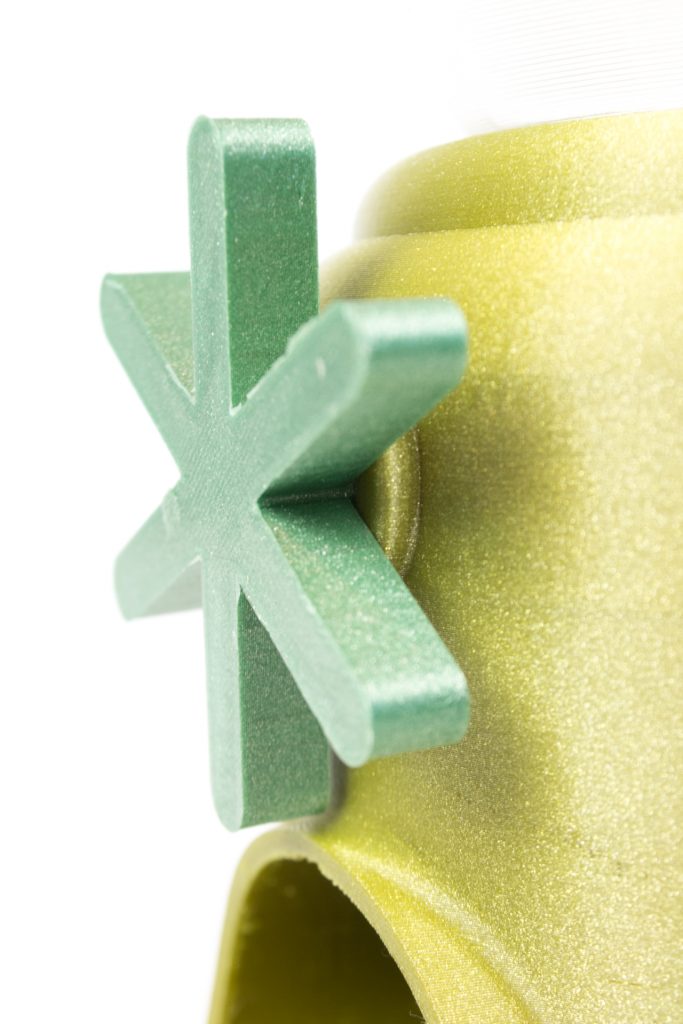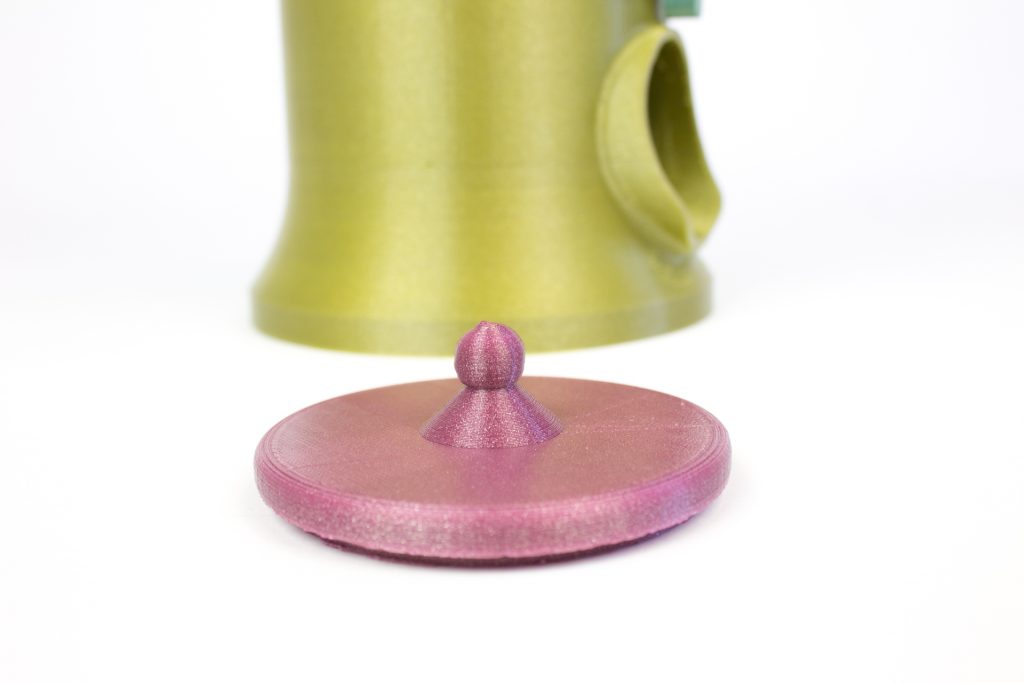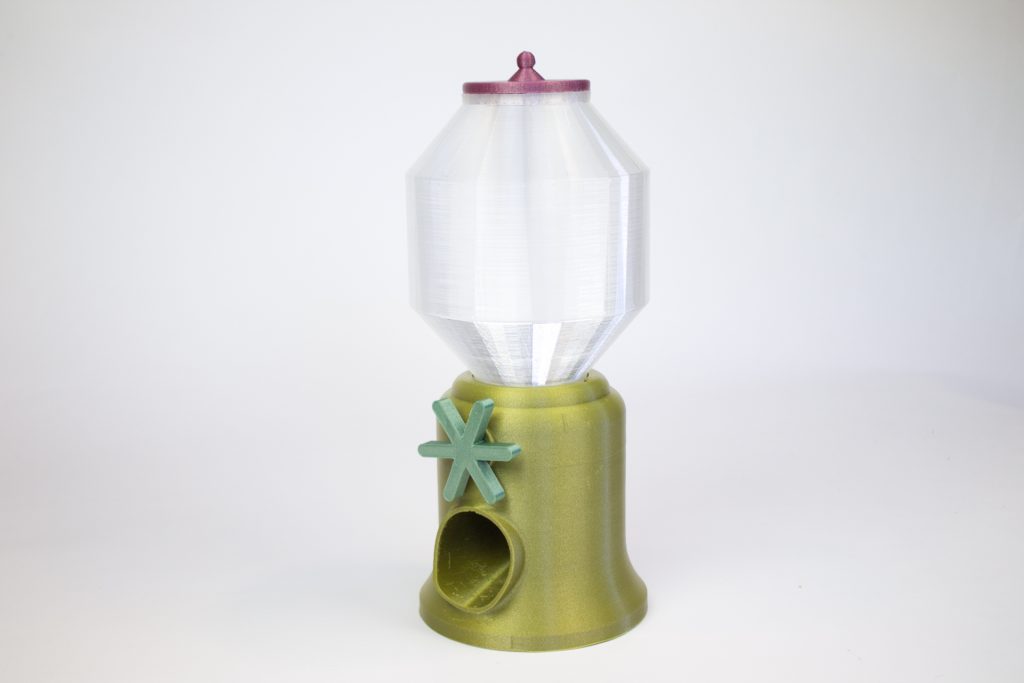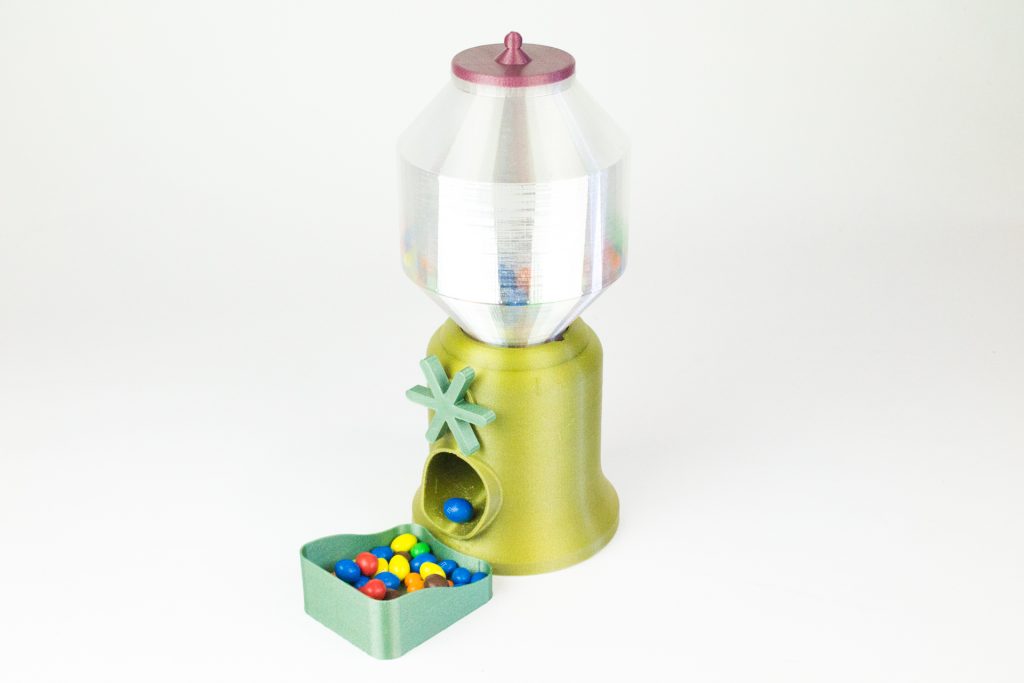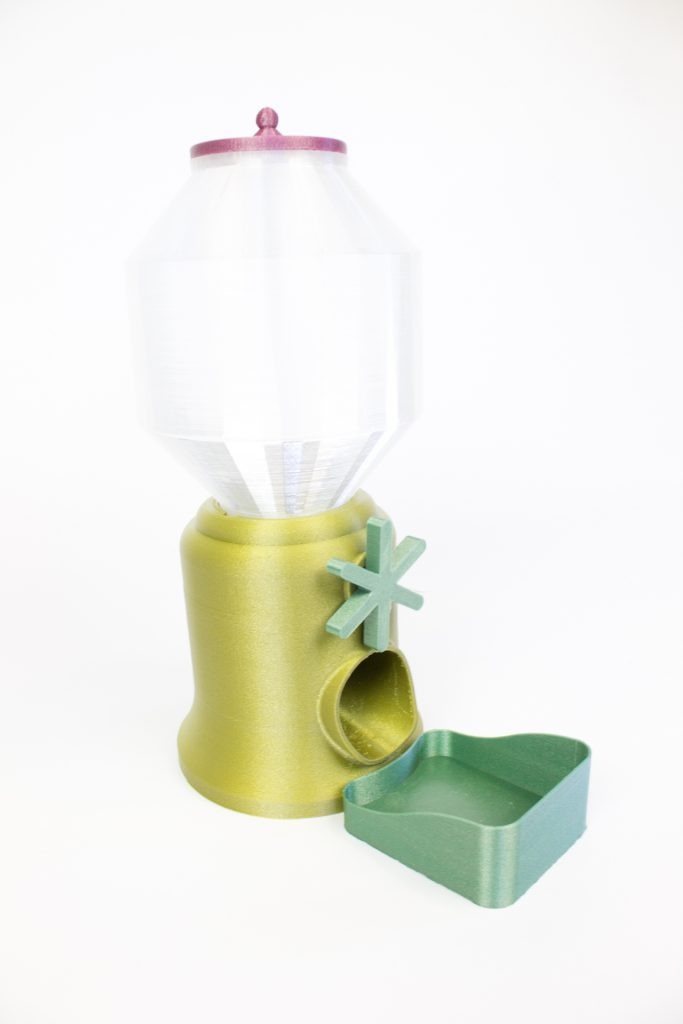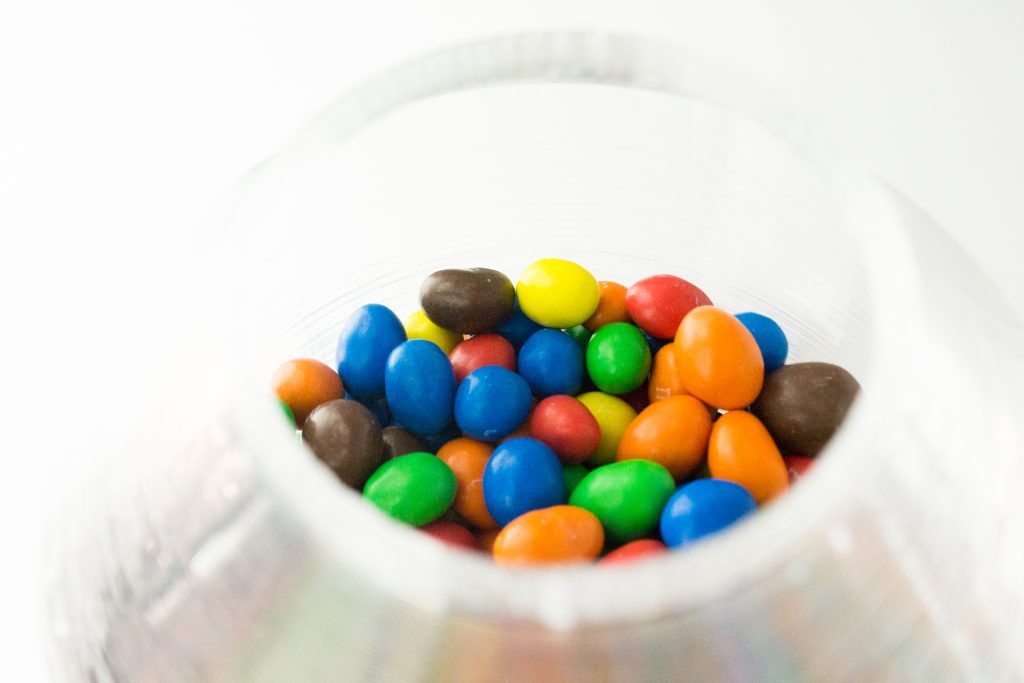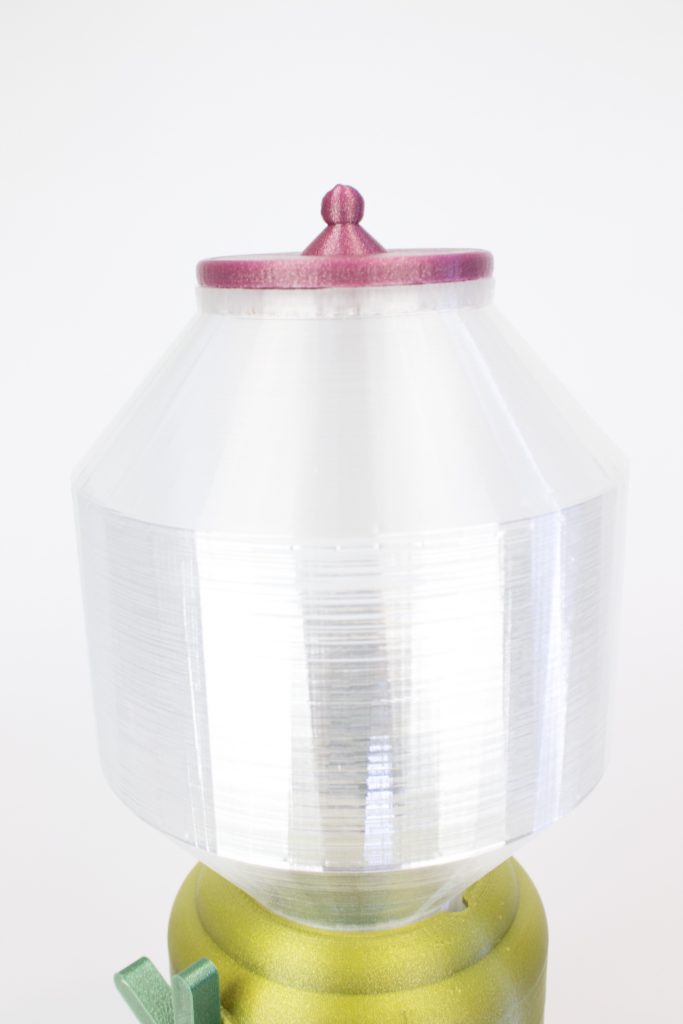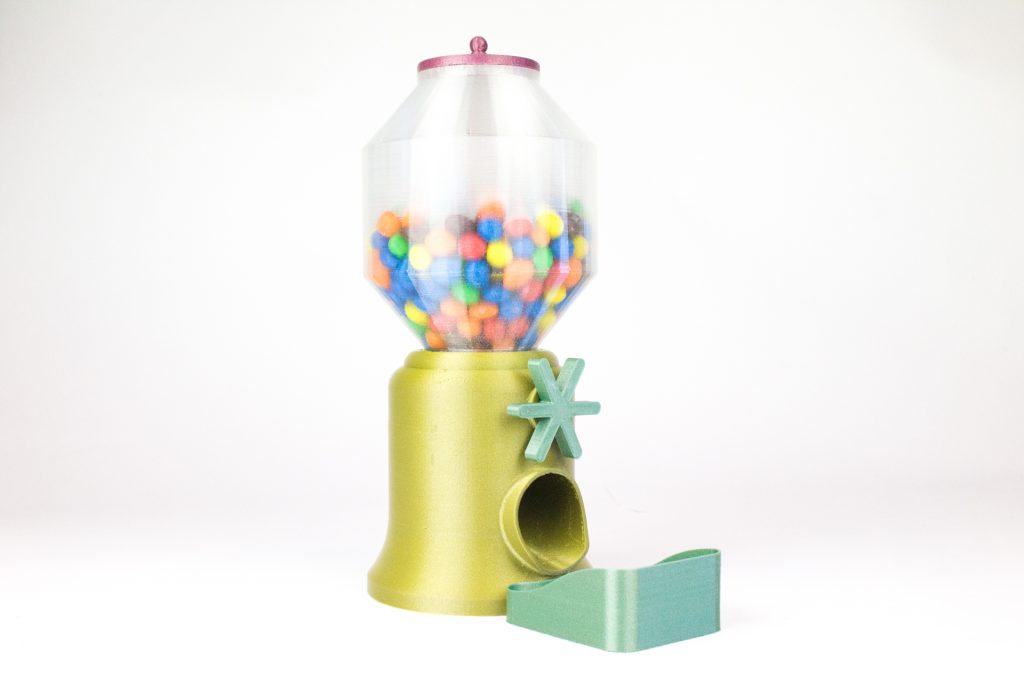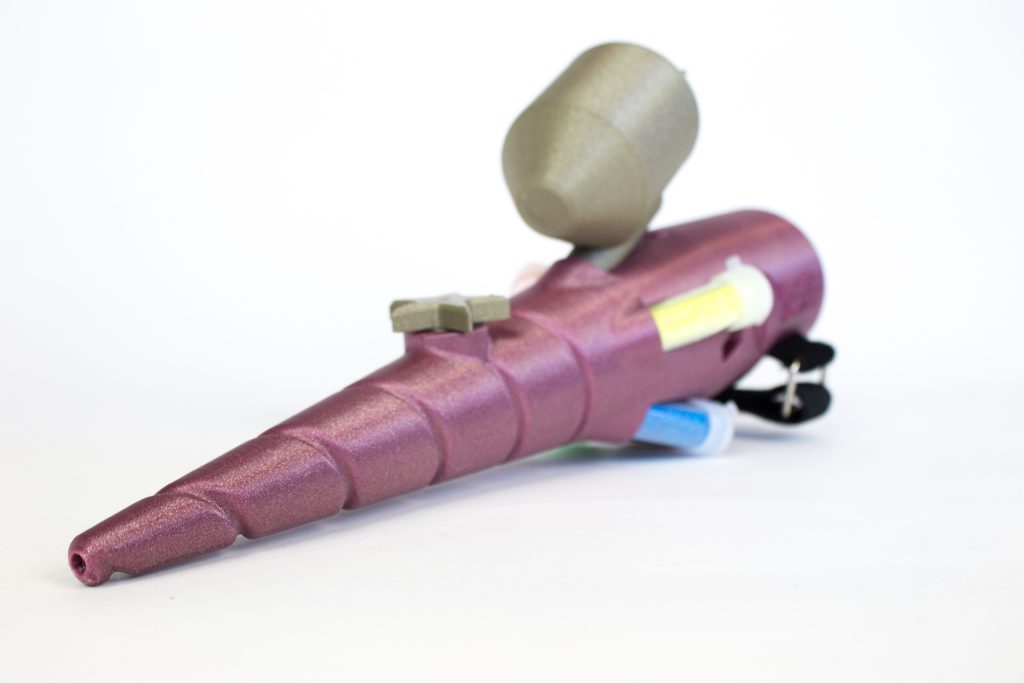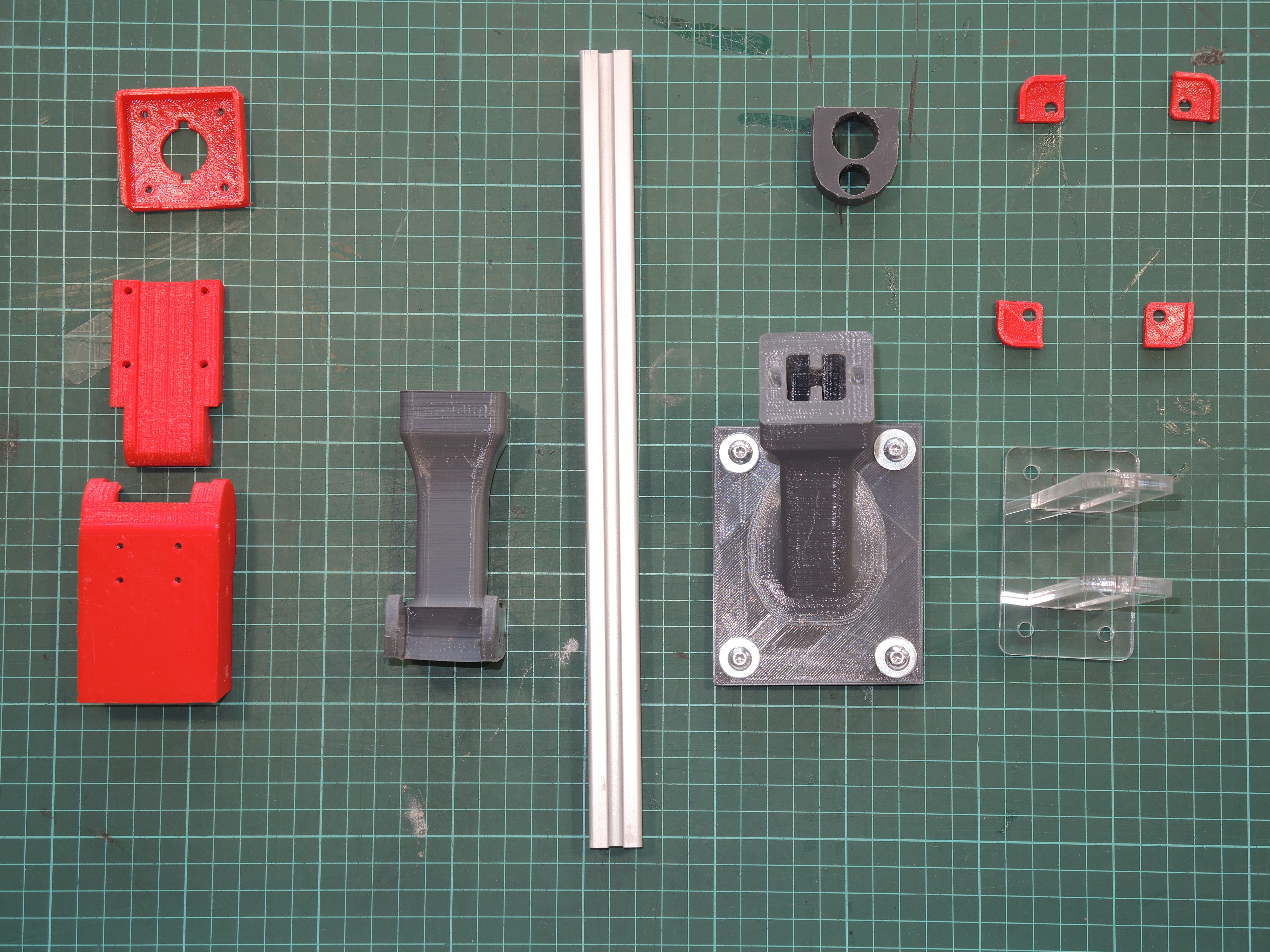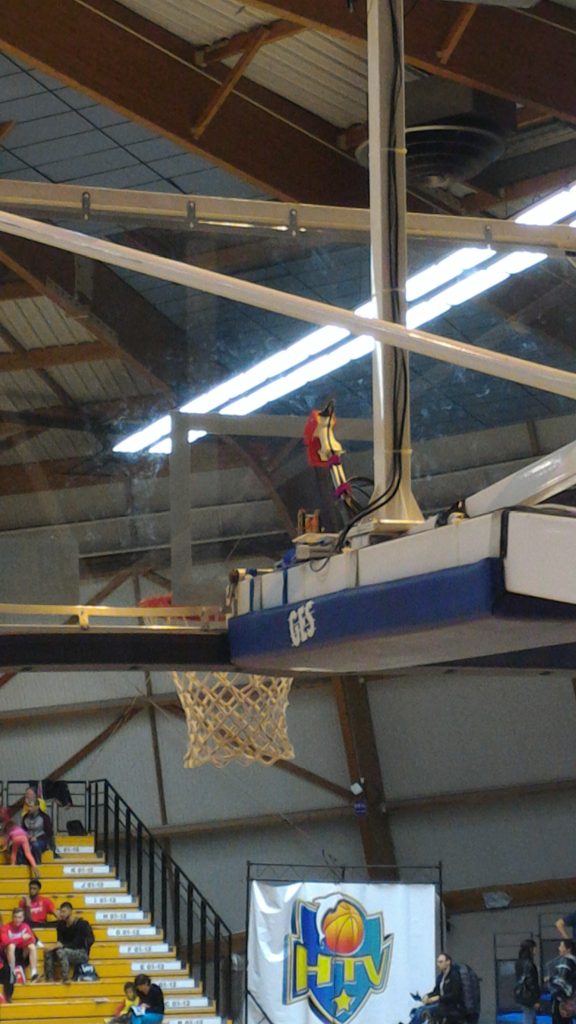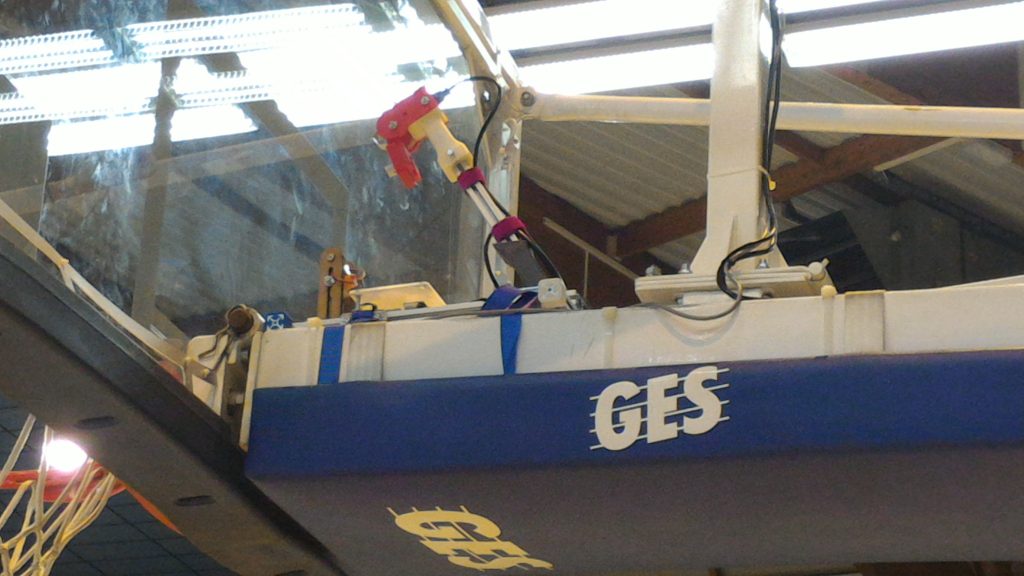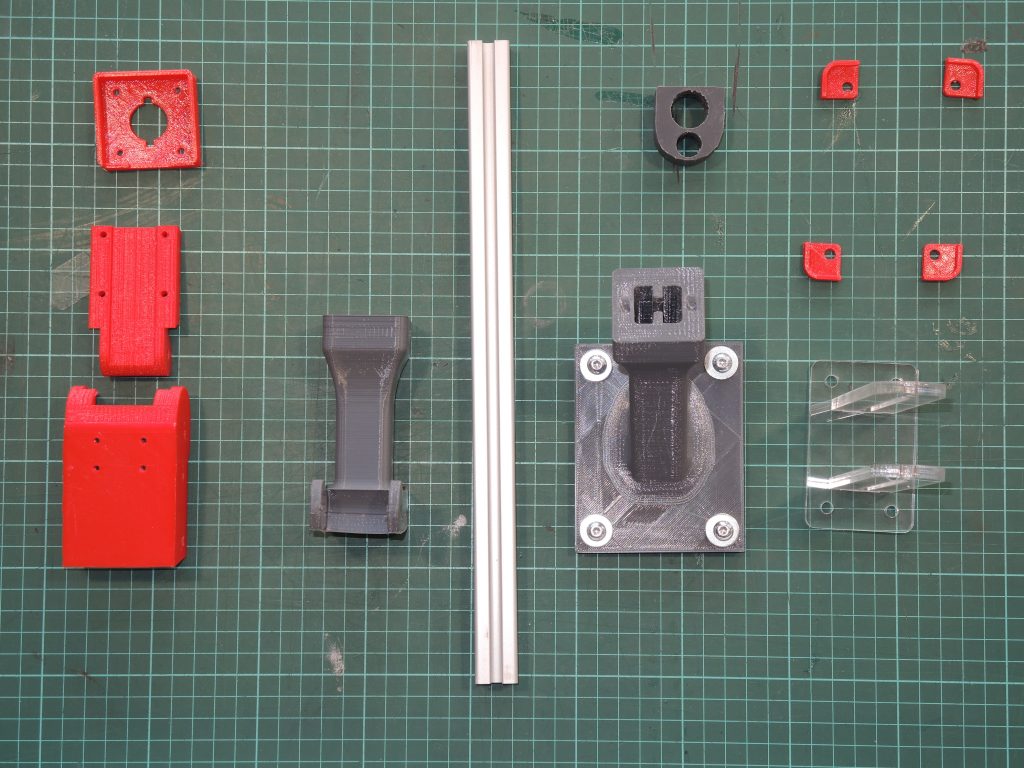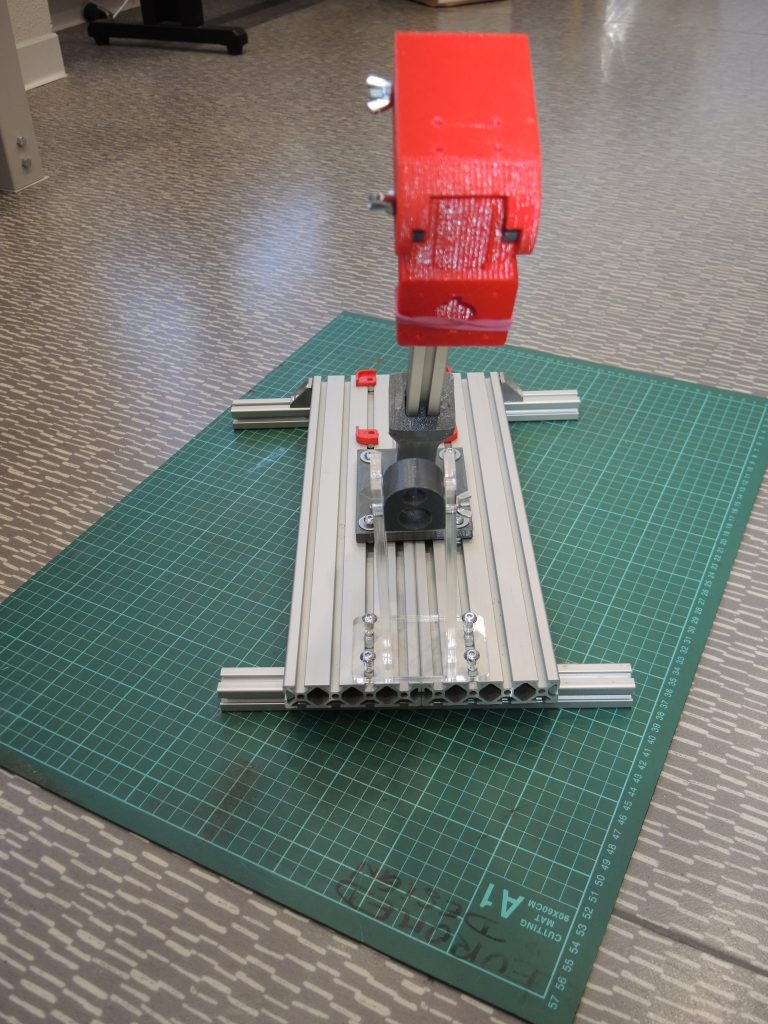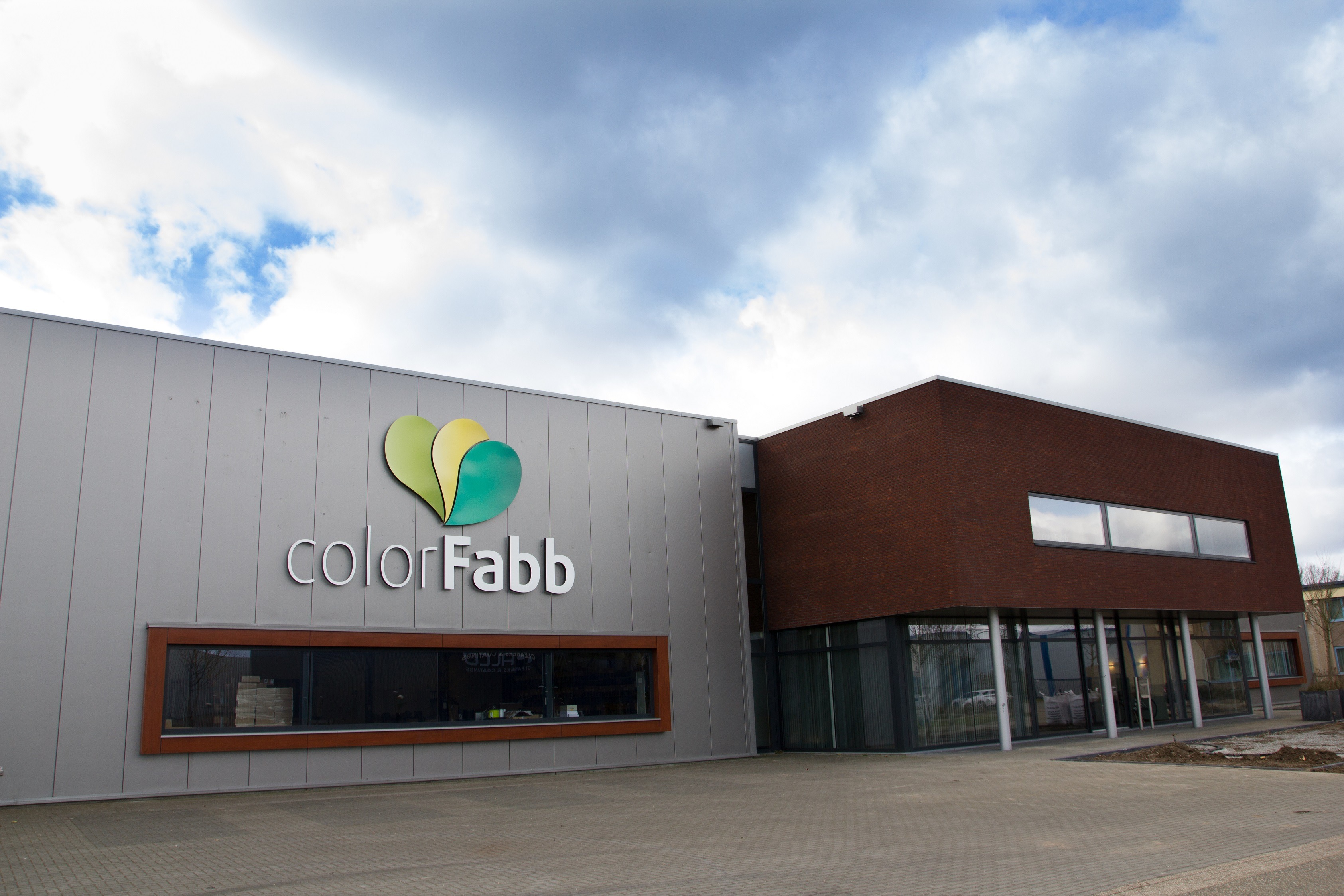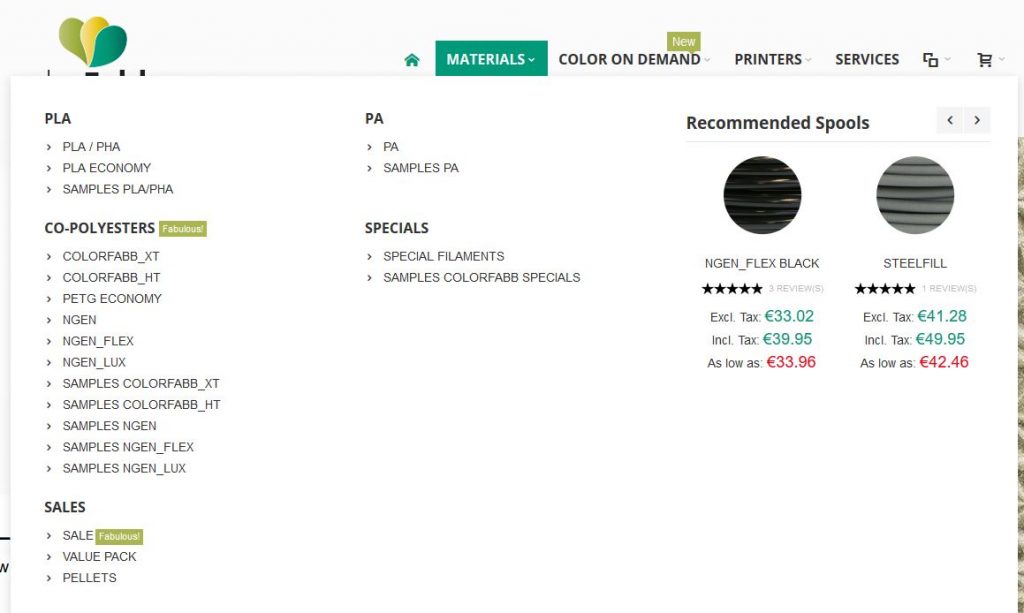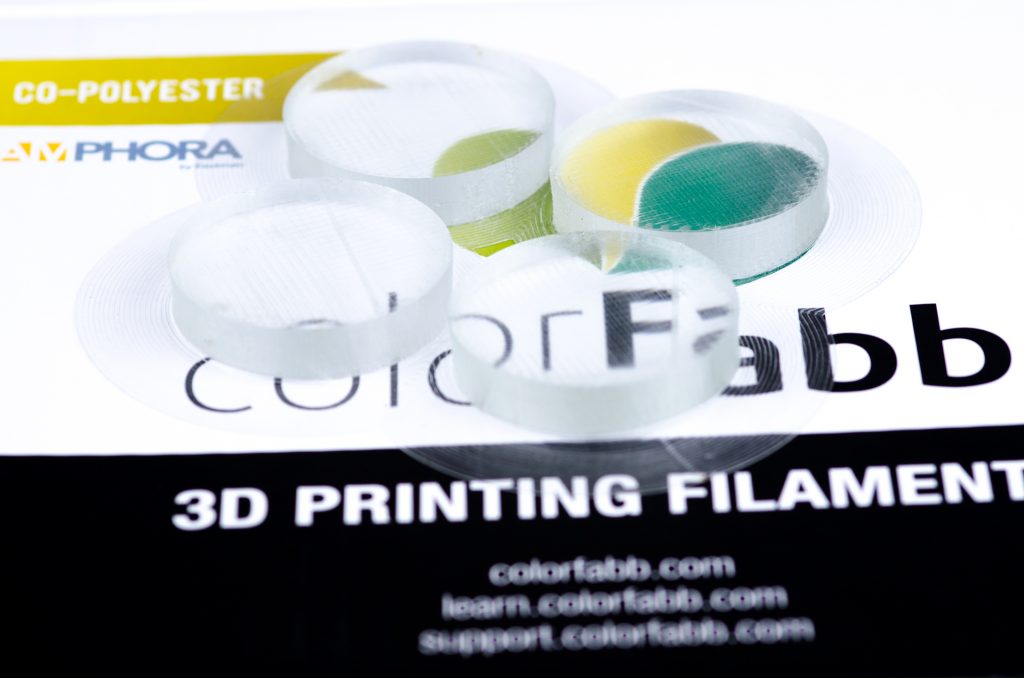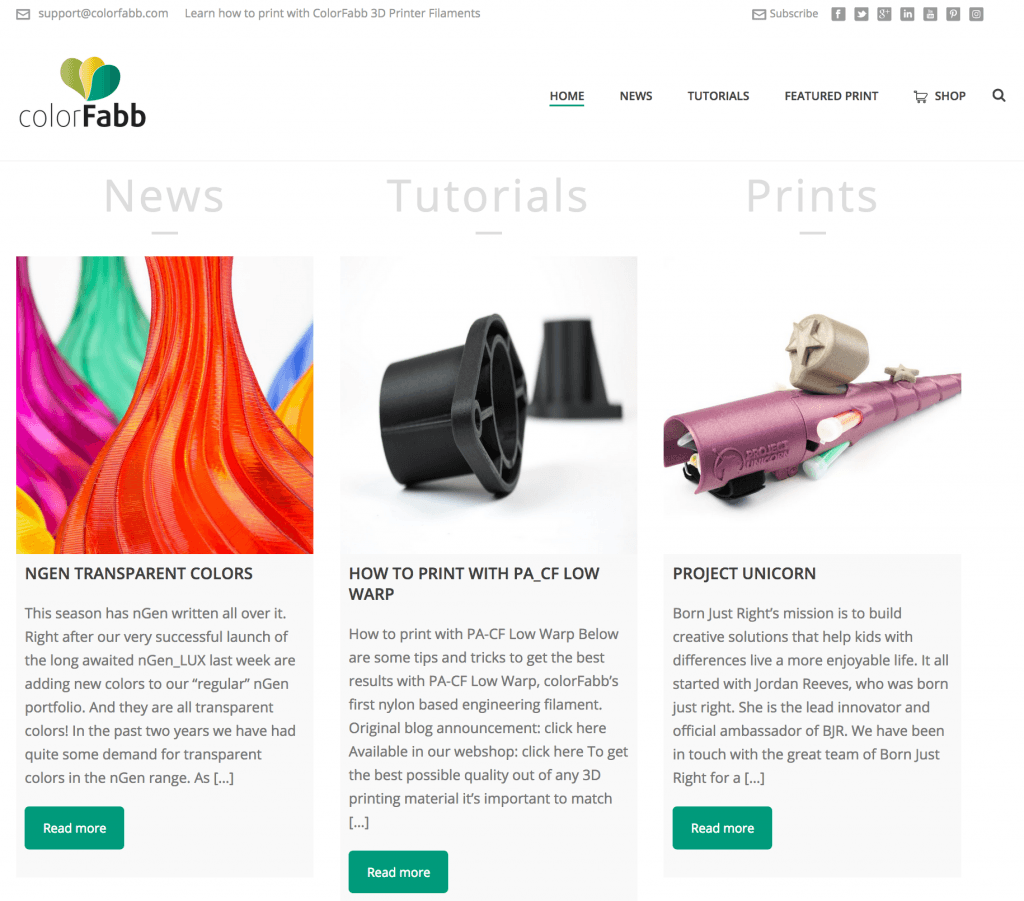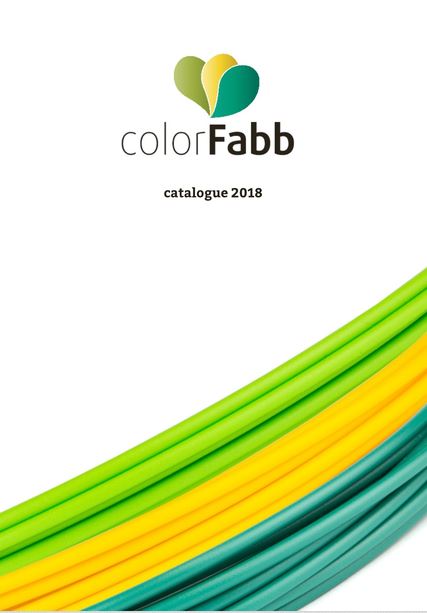Another field where 3D printing excels in is the replacement of parts. With the right materials 3D printing is a great tool to extend the life of many everyday items. Crucial to this are various factors like modeling skills (if the file of the part is not readily available) and the right material. A functional filament like our PA-CF Low Warp is a perfect match when it comes that latter part.
About a year ago we posted abouy the laundry dryer part printed with colorFabb_HT:
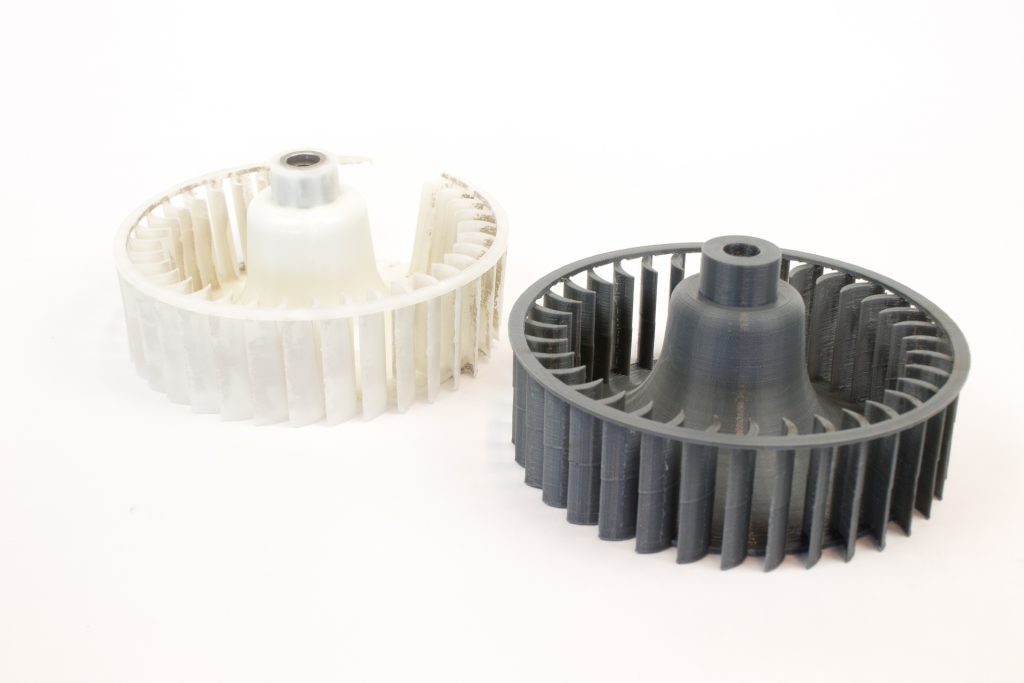 Original post: https://learn.colorfabb.com/laundry-dryer/
Original post: https://learn.colorfabb.com/laundry-dryer/
This week we saw two examples on Twitter of users making parts with PA-CF Low Warp, our highly functional engineering grade nylon based filament.
First up is Brent Wright. We recently wrote a blog about the use of 3D printing in the field of prosthetics. Brent has been doing fantastic work at a hospital in Guatamala by printing prosthetics making it more accessible and cheaper for local people. You can read the original blog here.
Turns out that Brent is using his 3D printer for other parts as well:
https://twitter.com/lifenabled/status/977729672401379328
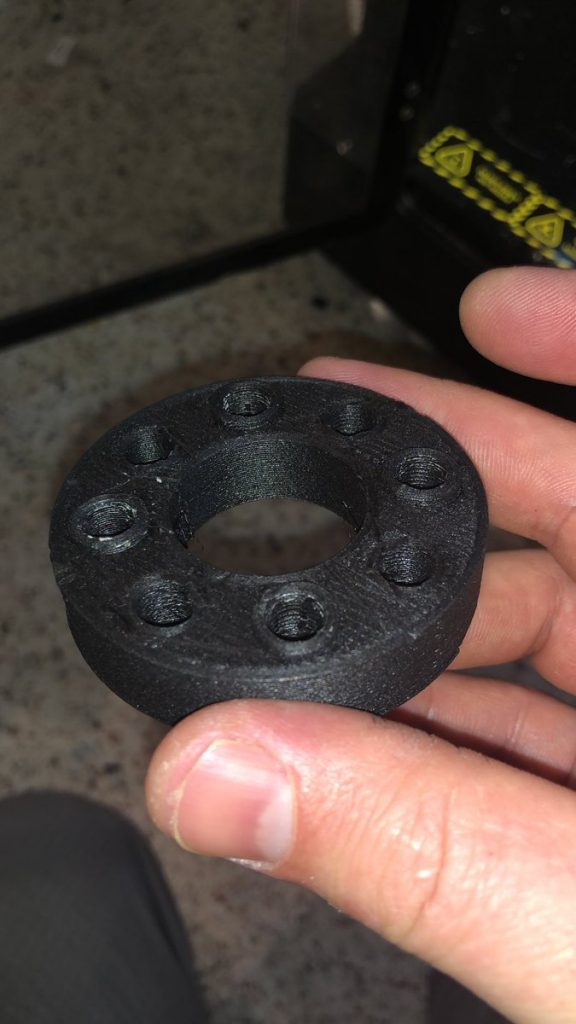 Image courtesy of Brent Wright
Image courtesy of Brent Wright
As you can see the original part is no longer available and instead of replacing the entire bed or having an expensive spare part made, Brent went to work and modeled & printed it. This way one saves money, time and also the environment. A small piece of plastic ensures not only that an entire bed is made obsolete, but a new bed also does not need to be transported through the Guatamalan jungle.
Brent has been using PA-CF Low Warp for a bit now, especially for prosthetics:
And we’re happy he has found yet another use for this great filament!
But the need to repair stuff can be found everywhere in the world. We make a small leap from the jungle of Central America to the UK, where Steve Cox resides. Steve is of course no stranger to 3D printing and colorFabb as his excellent skills with bronzeFill have shown. (Click here and here for examples).
Now, Steve was already working with PA-CF Low Warp (see this thread here for an excellent example) and when the vacuum cleaner broke he had the right material in house to print a new part:
When we contacted Steve about this he said: “I think this particular way of utilising 3D printing is something that should get more publicity, especially as we have such environmental pressures on us now. I think it can definitely play a part in the circular economy because it puts us in a position where we are able to repair and reuse things more effectively than ever before.”
We couldn’t agree more. Steve was so generous to send us some high-res pictures:
All images courtesy of Steve Cox
Interestingly the vacuum cleaner head is now even stronger than it was before it broke.
Steve also notified us about a website called Happy3D: https://www.happy3d.fr/en/ This website specializes in designs to repair every day objects. You should definitely check this one out!
This was the second Dyson part Steve printed. Before he printed a part that went in the front of the head and held the bearings for the rotating brush. He modelled the part from photographs they sent him and a few critical dimensions. He then printed the repair part in white nGen and it worked perfectly – the material cost for the part was around 16 Euro cents!
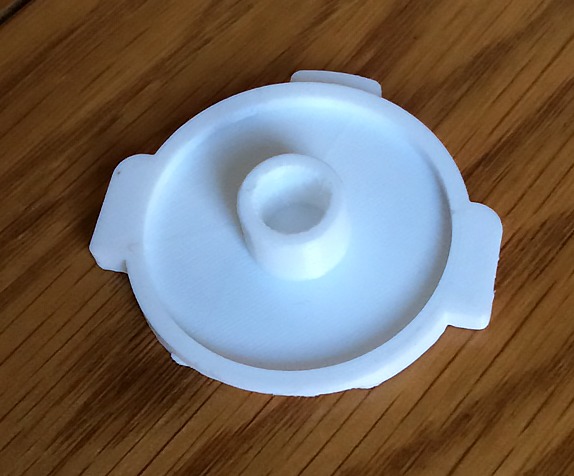 The printed part, made with nGen White
The printed part, made with nGen White
We thank Brent and Steve for sharing their work on Twitter and their ultra fast responses after we contacted them. True makers and problem solvers who are showing us how 3D printing can and should be used. Great job, guys!
It is a well established fact by now that our new PA-CF Low Warp filament is all about functionality. We developed this filament with only one goal: to make sure a lot of users have the ability to print high quality printed parts. Even on a cold bed. PA-CF Low Warp is, due to its stiffness and strength, a perfect material for replacement parts and custom made parts.
The PA-CF Low Warp filament is a one of a kind polyamide formulation with the ability to print nearly warp free on non heated buildplatforms. Low infill prints come out perfectly flat on cold bed for higher infill prints 40/50C temperature is enough to obtain flat prints.
PA-CF Low Warp allows continuous use at 120°C while retaining sufficient properties for the intended application. Most high heat resistant materials will be difficult to print and require heated chambers and / or heated platforms to keep parts from warping the bottom layer. PA-CF Low Warp shows a very low tendency to warp, even at ambient temperature platform.
Eager to get started? Click here to get the basics on how to print with PA_CF Low Warp.
PA-CF Low Warp is available now in our webshop and ships from stock. We currently stock spools of 700 grams, but as from late next week large spools containing 2kg of material will be available as well.
You can also opt to get a unique bundle package, containing one spool of PA-CF Low Warp and the Olsson Ruby Nozzle 0.4mm in our webshop.

